Adam Smith Awards Asia
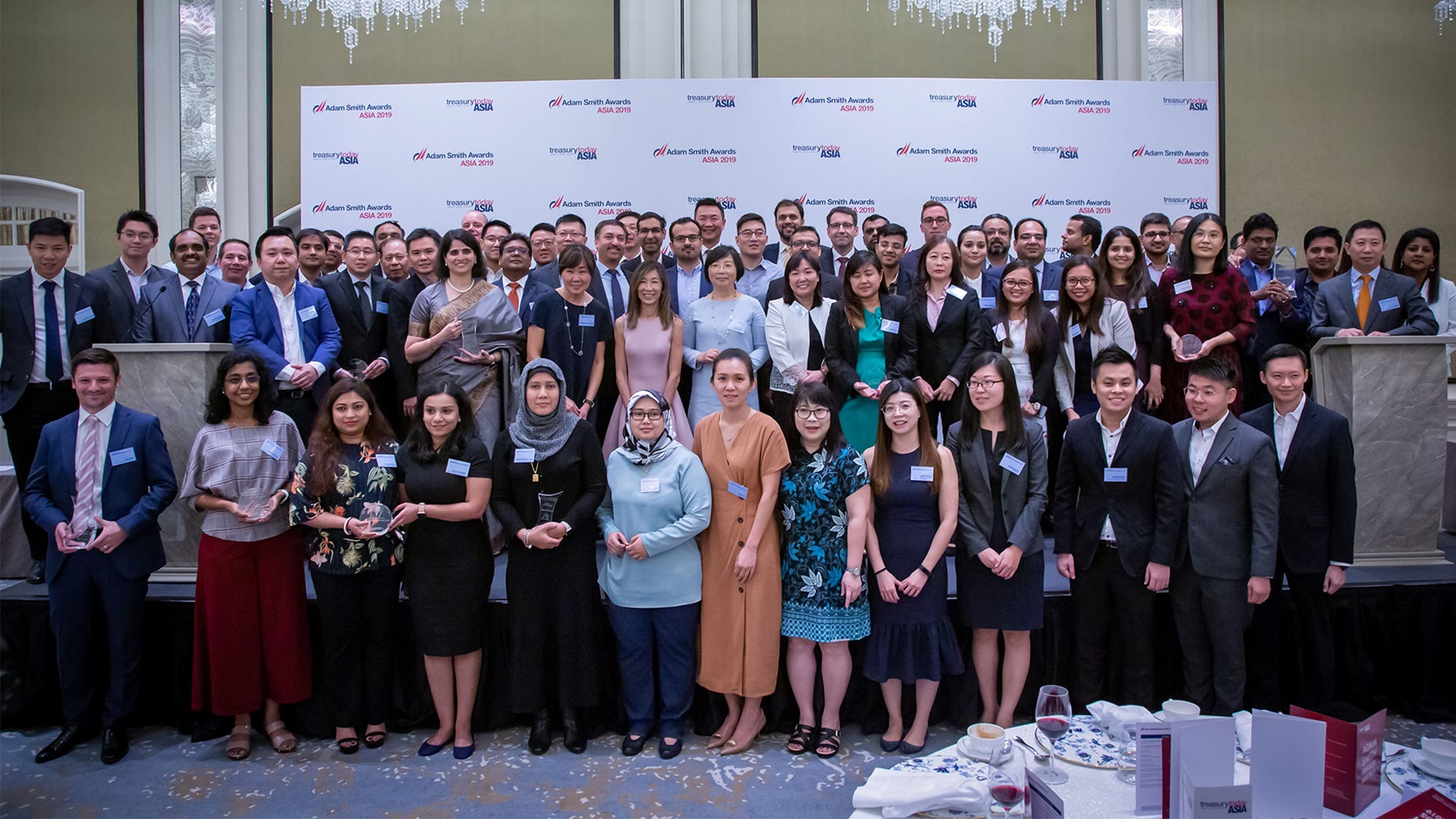


Congratulations to all the Overall Winners and Highly Commended Winners of the Adam Smith Awards Asia 2019.
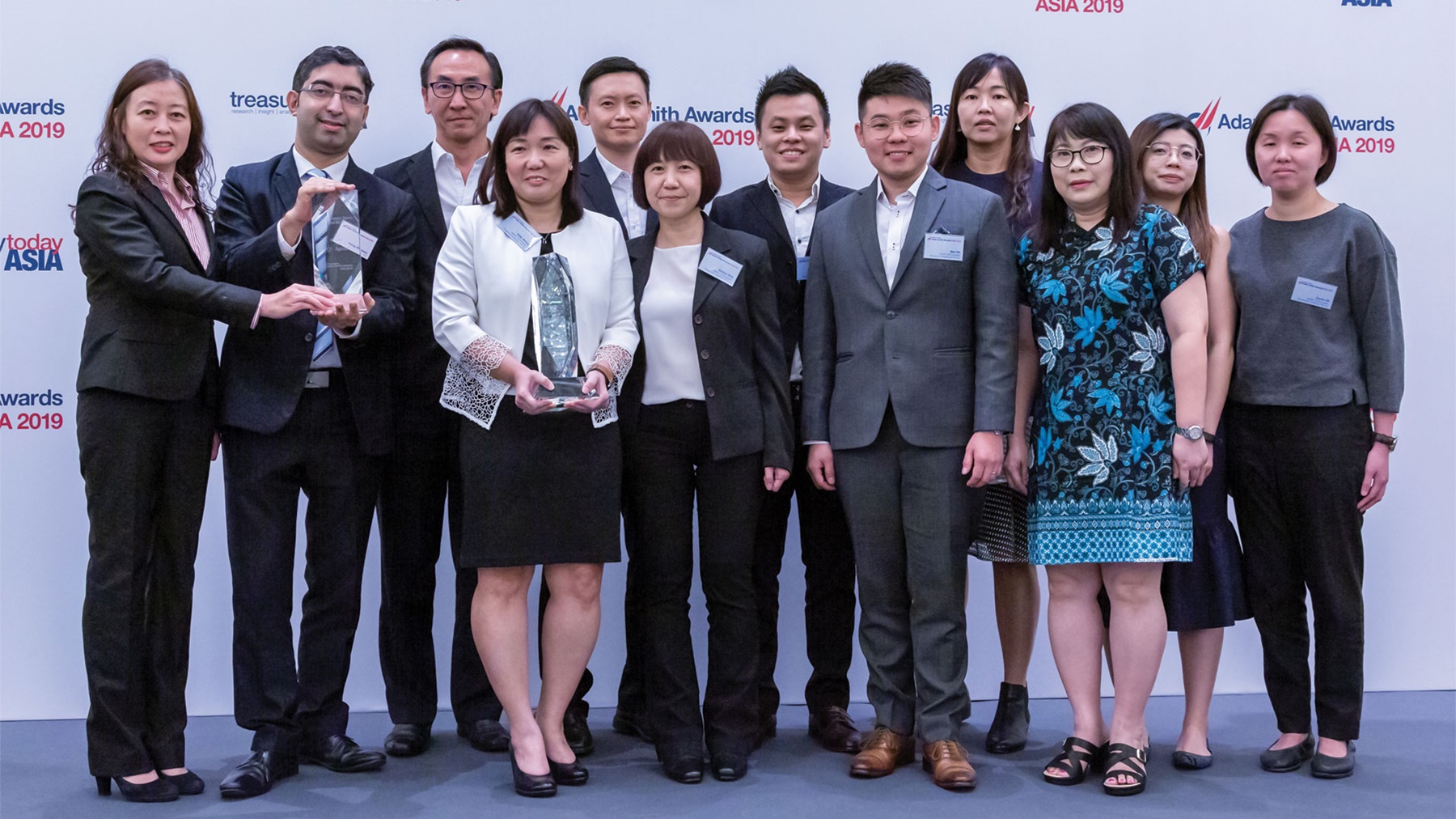
For a business that generated revenues of US$4.91bn in 2018, this global leader in life sciences, diagnostics and applied chemical markets certainly knows how to employ a successful business formula.
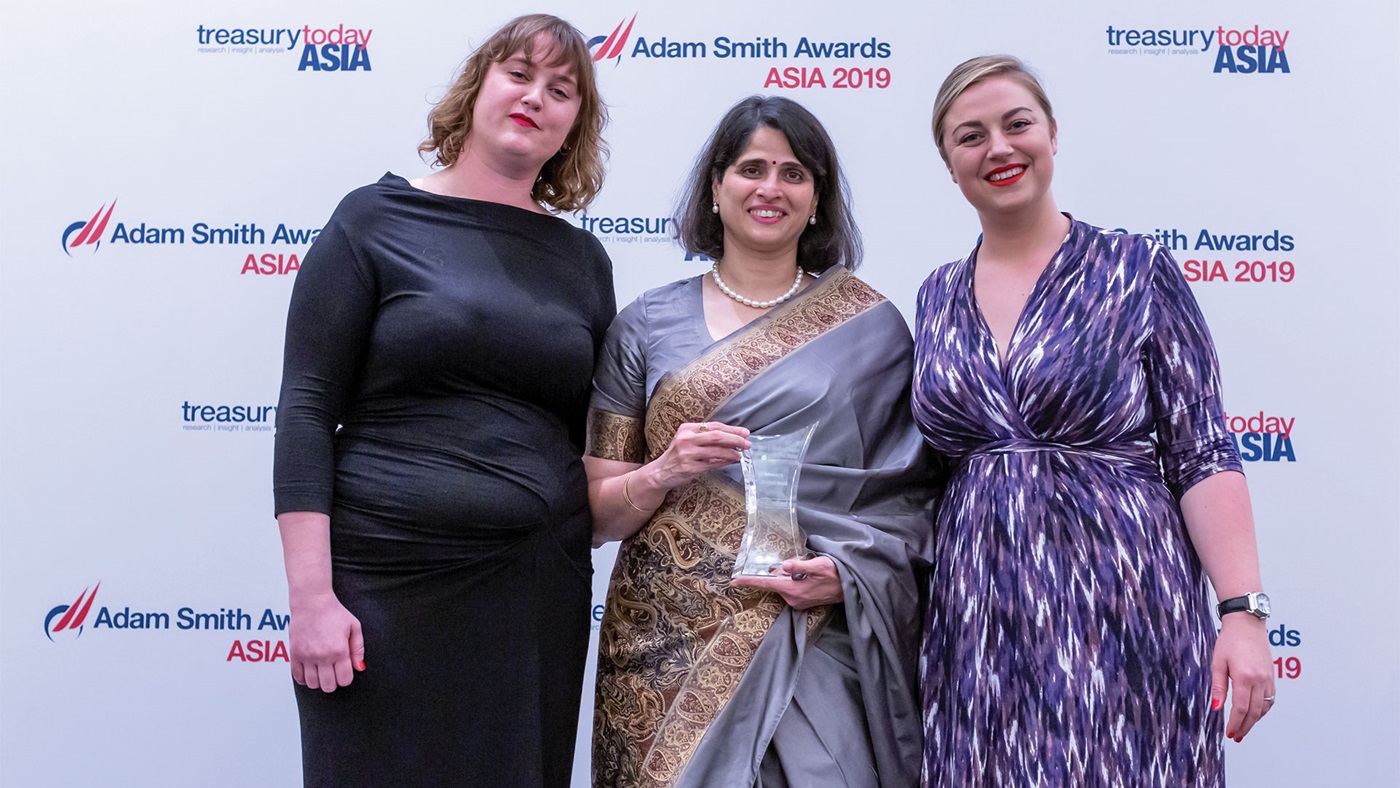

Rashmi Joshi has more than 25 years of experience in the finance departments of FMCG, pharmaceutical, consumer durable and lubricants industries. Her expertise has seen her play a key role in creating and implementing a five-year growth strategy and vision for India and South Asia for Castrol India, whilst leading the India finance team and working to develop talent for India and the wider BP company, of which Castrol is a subsidiary.
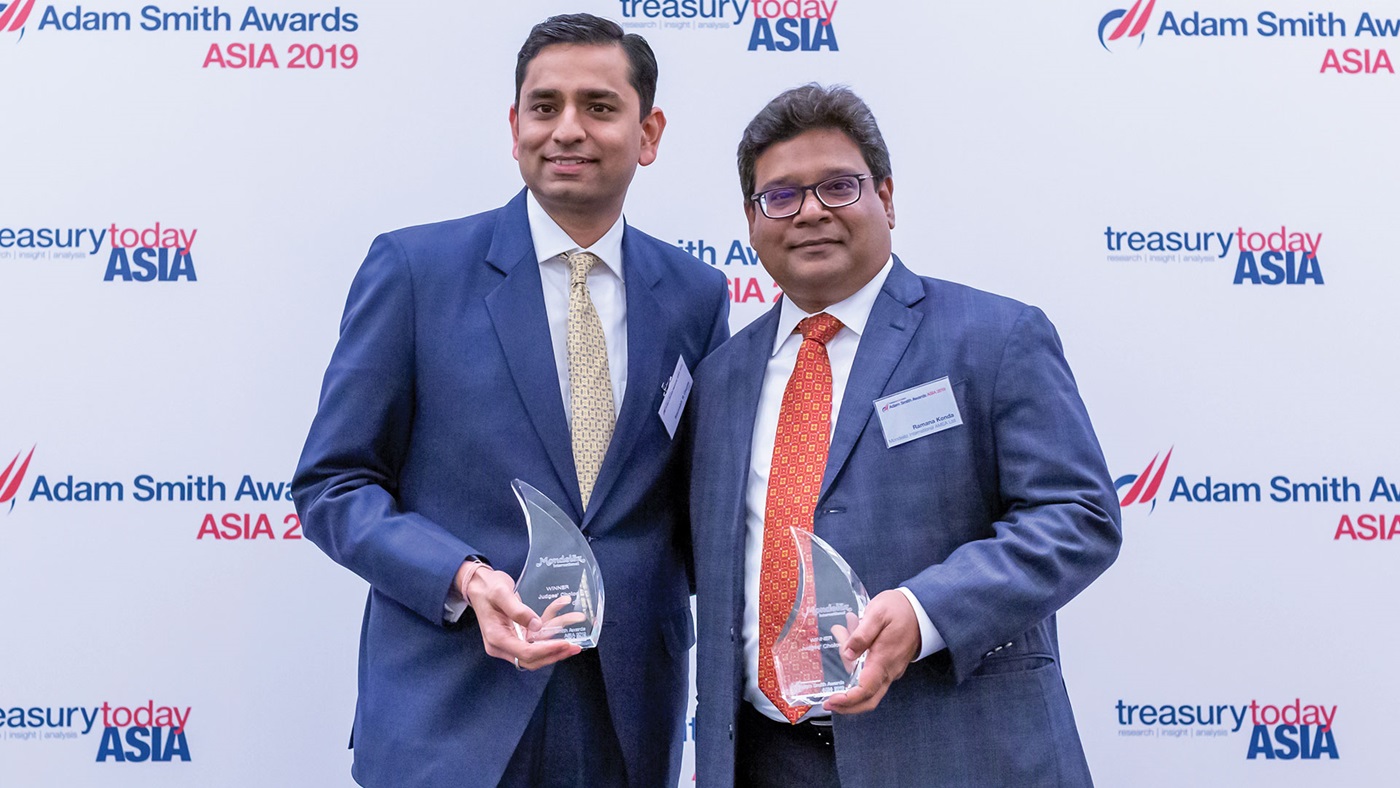
Mondelēz’s regional treasury centre covers the diverse markets of both Asia Pacific, Middle East and Africa (AMEA).
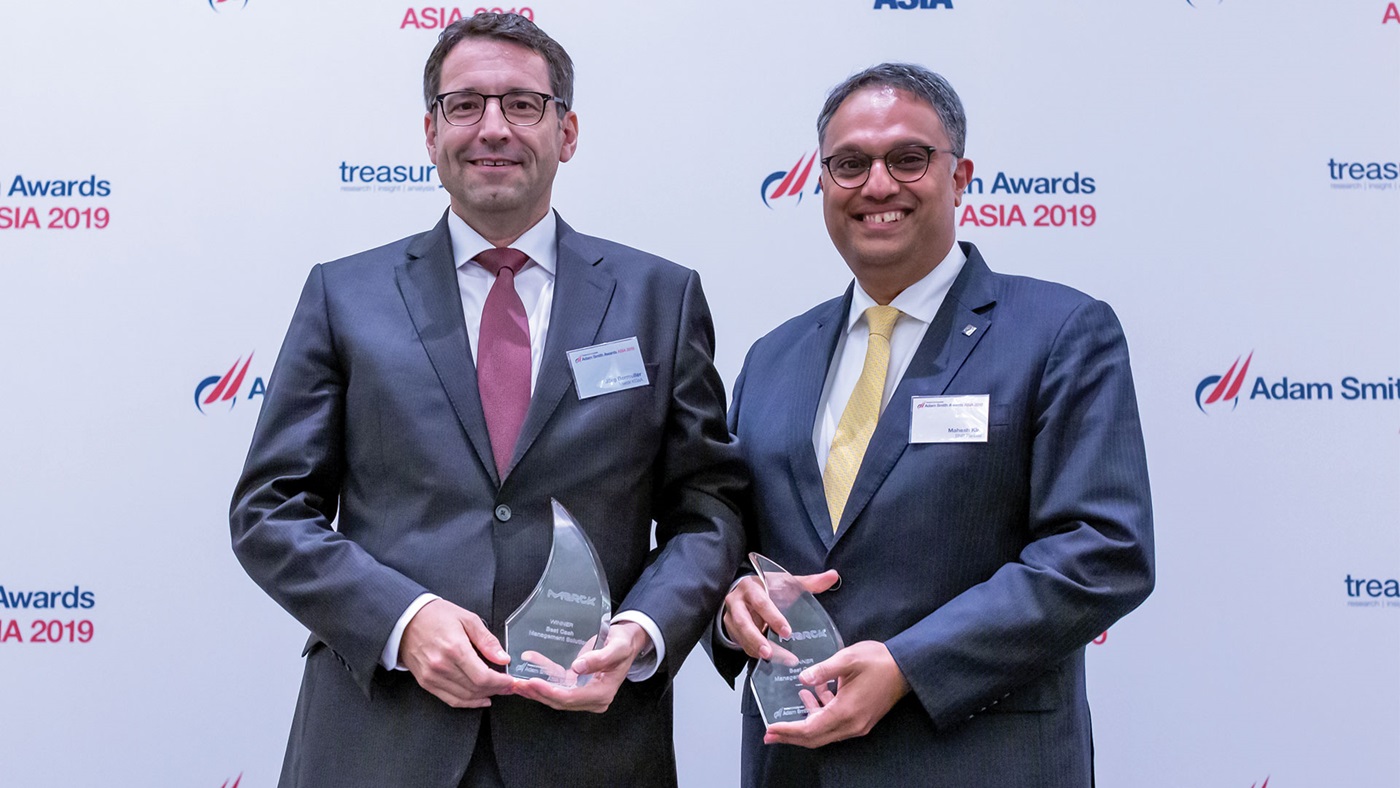

Merck KGaA set out a strategic roadmap for the company transformation from 2016 to 2020 to achieve its target organic growth for its three key businesses.
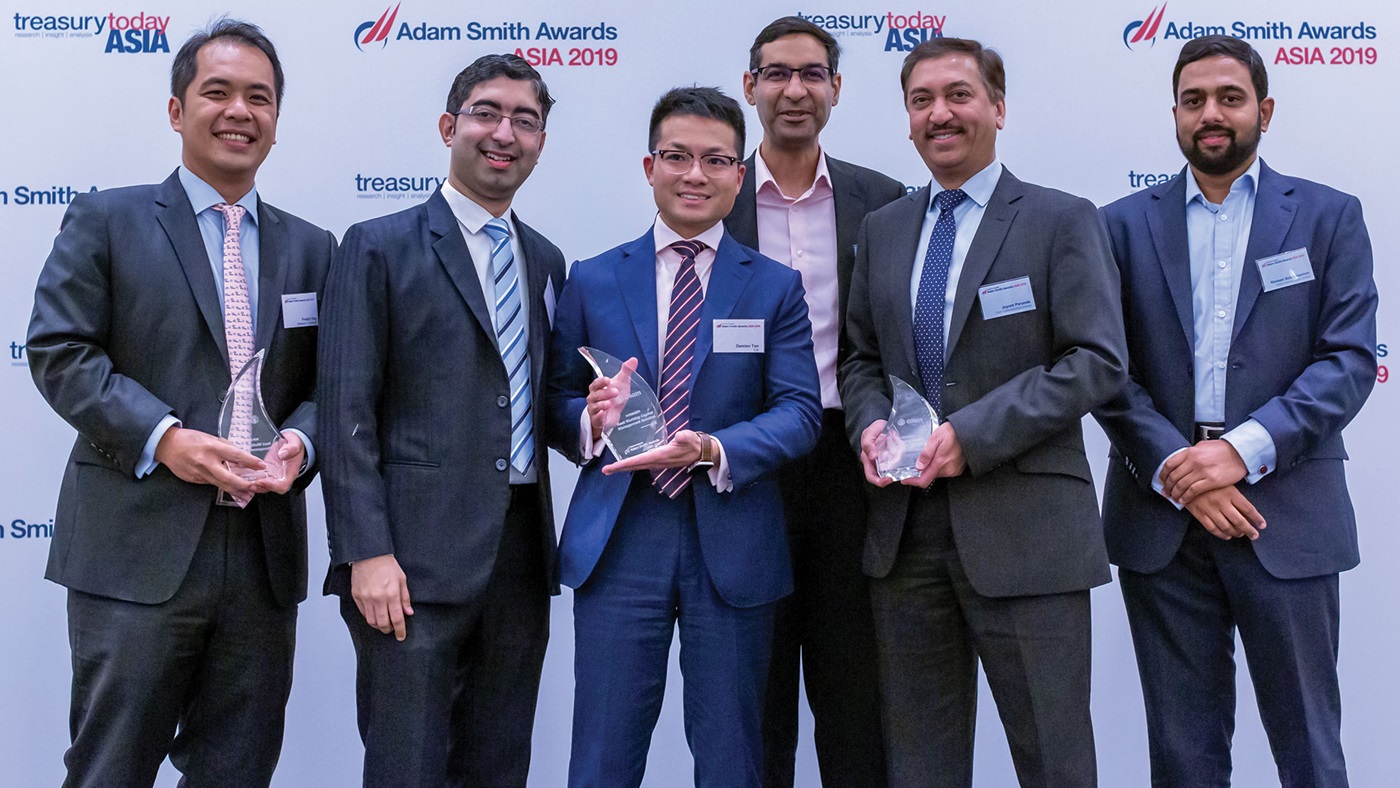
In a six-year strategic plan released by Olam earlier this year, it set a clear goal of being a global food and agri-business that delivers food, feed and fibre, along with innovative solutions to its customers within the next five years.
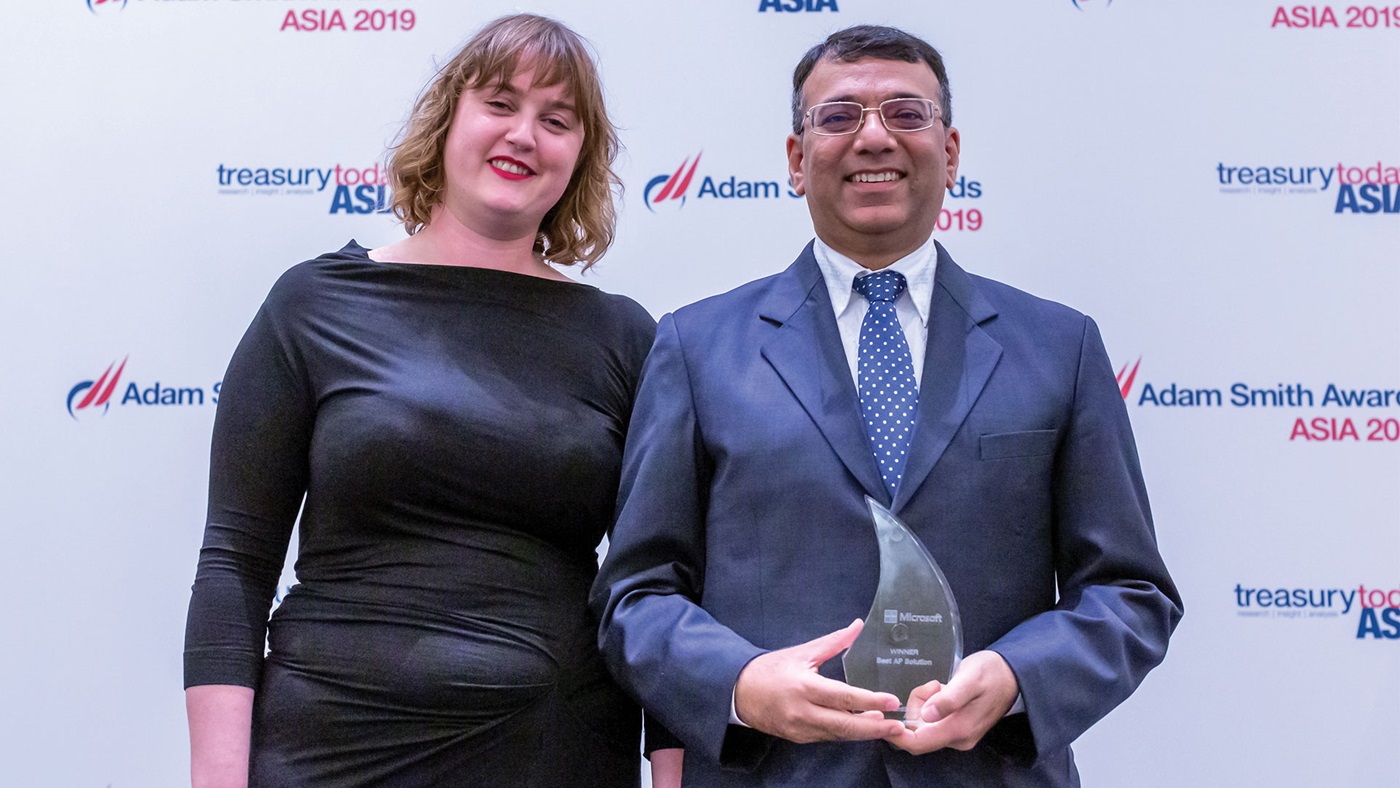
As more and more enterprise customers looked to leverage Microsoft cloud to make new revenue streams possible, Microsoft India’s strategic focus was to grow its cloud business. However, despite being offered terms of between 30 and 60 days for software purchases, Microsoft’s customers constrained by working capital often request longer payment terms to finance any deal.
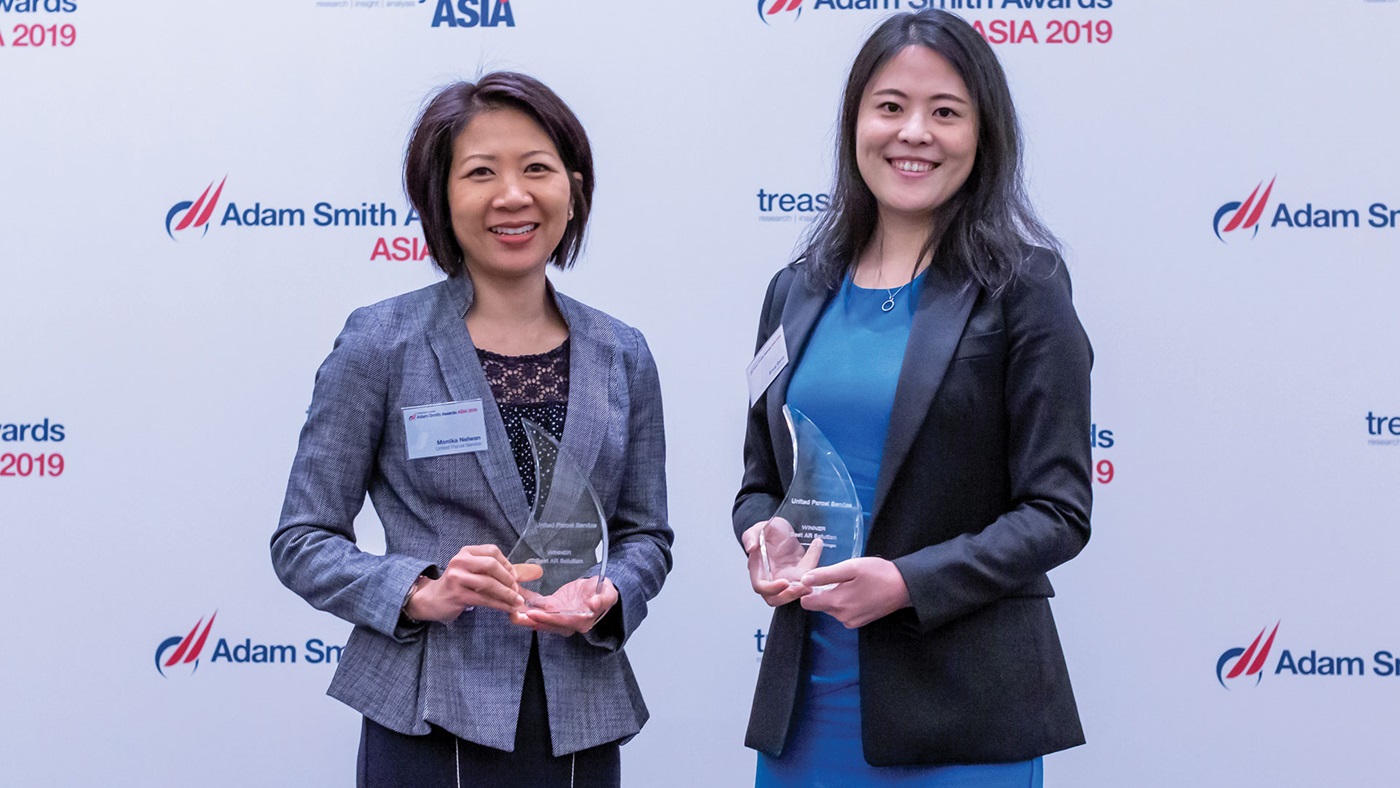
The Philippines consists of more than 7,600 islands. For a logistics business, this can be a challenging market, not just for delivering packages, but also for collecting payments.
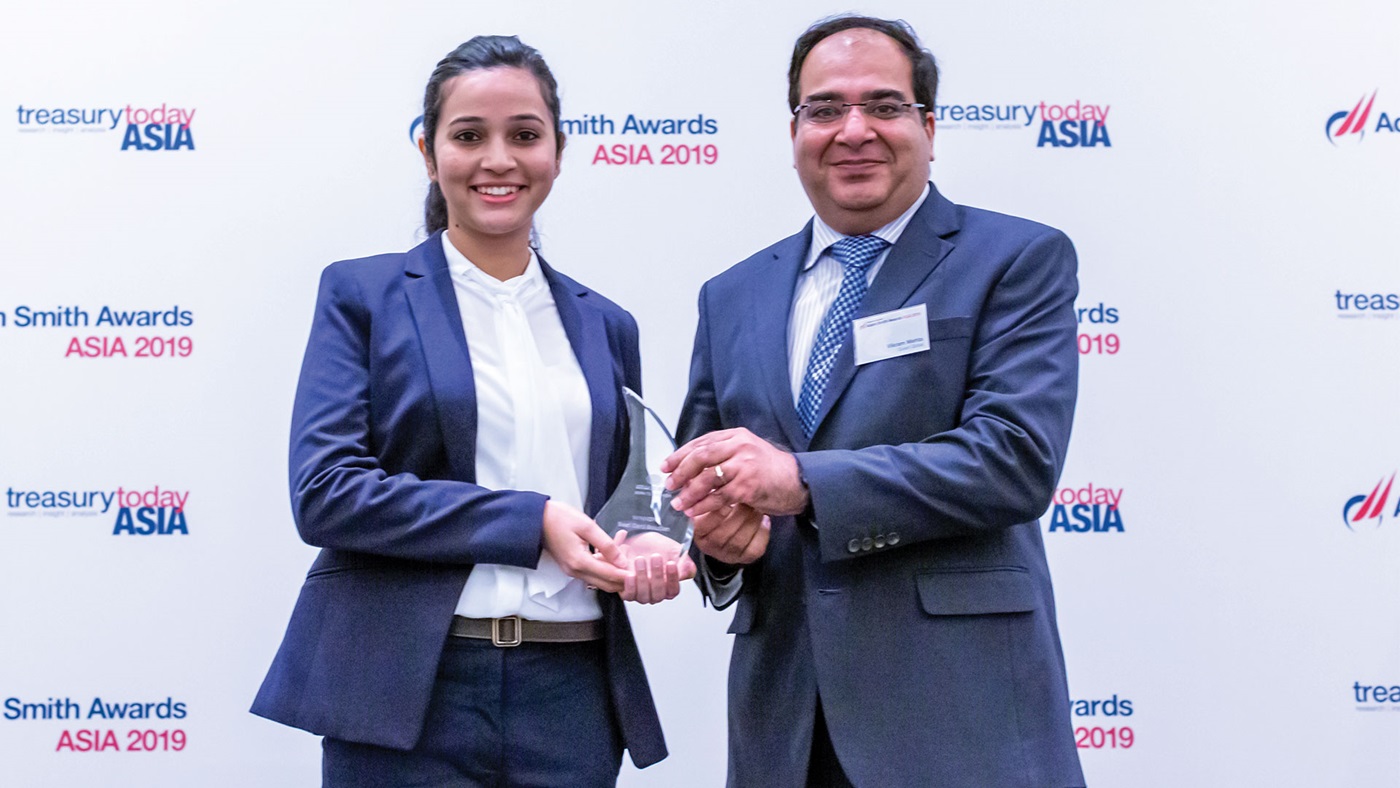
At QuEST, the treasury team based in India takes care of corporate credit card administration for the entire organisation across the globe. From looking after employee spend requirements and building great relationships with banking partners, to managing liquidity while enabling quick resolution of business-related expenses, corporate credit cards play a vital role in the company.
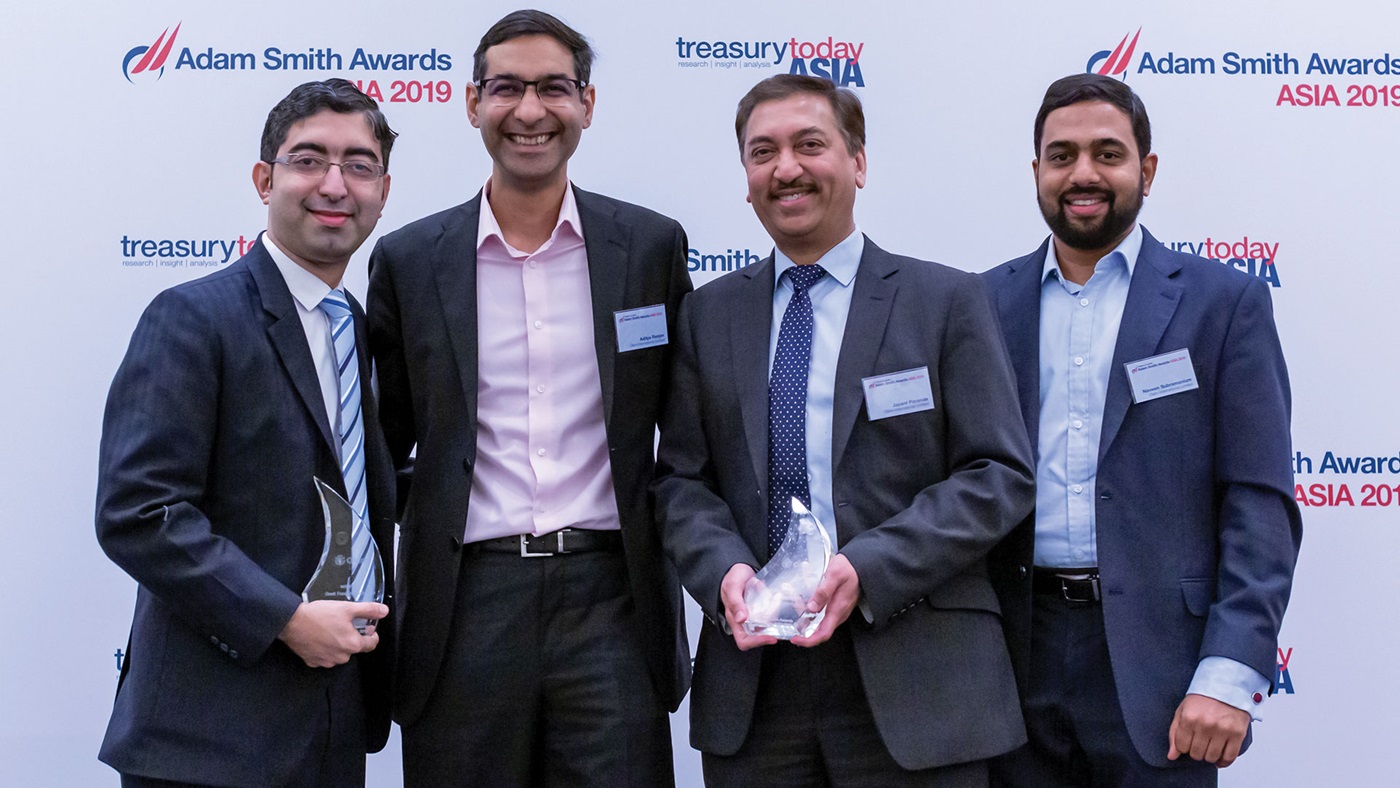
Between 2015 and 2016, Olam undertook a series of acquisitions to build up its mid/downstream capabilities, including acquiring ADM’s cocoa business for US$1.2bn, US peanut sheller McCleskey Mills for US$176m, and wheat milling assets in Nigeria for US$275m.
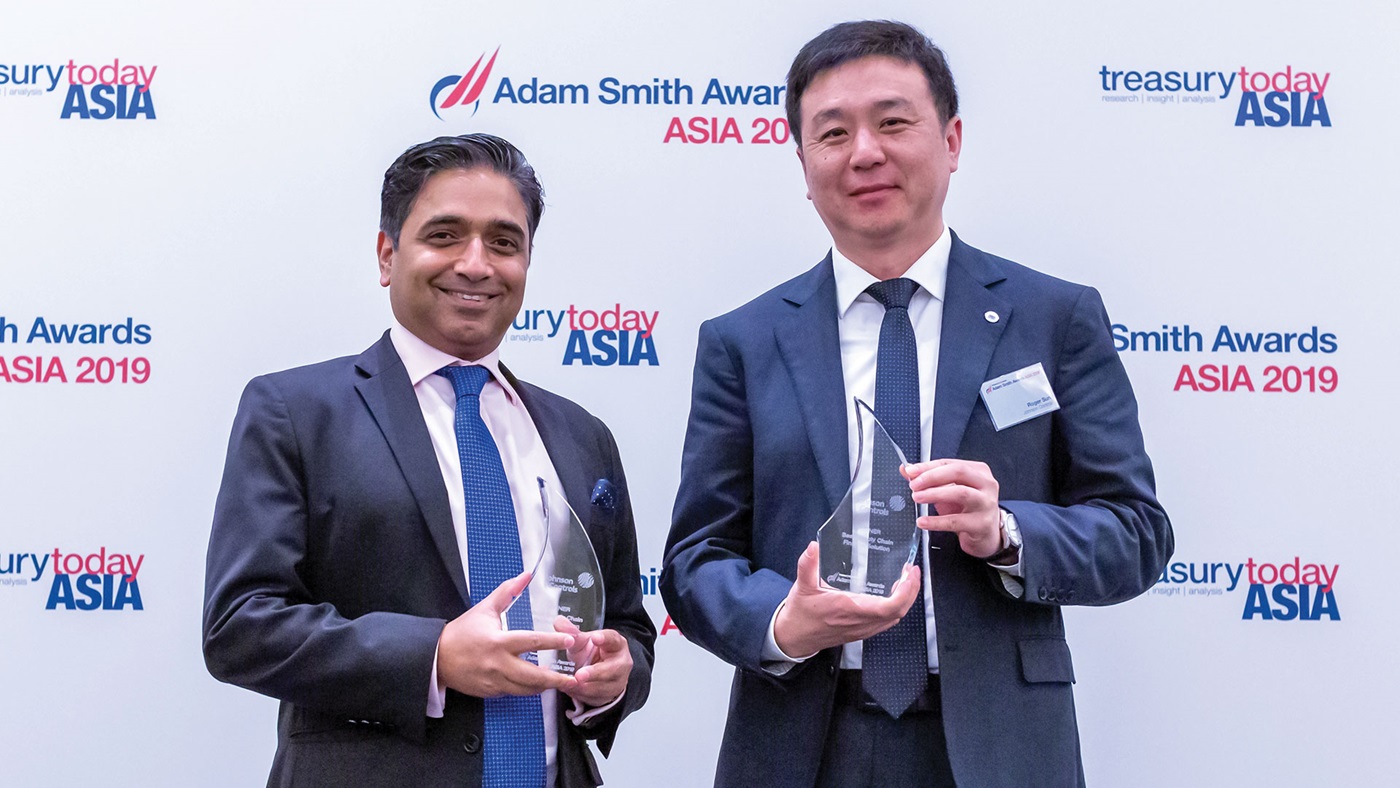

Like many growing companies, Johnson Controls International (JCI) has a focus on working capital and had decided to use supply chain finance (SCF) as a way of freeing up cash from its supply chain. In North America, the firm had put in place a programme with a specialist SCF technology vendor. As a listed company, the investors would pay a lot of attention to their working capital metrics and efficiency.
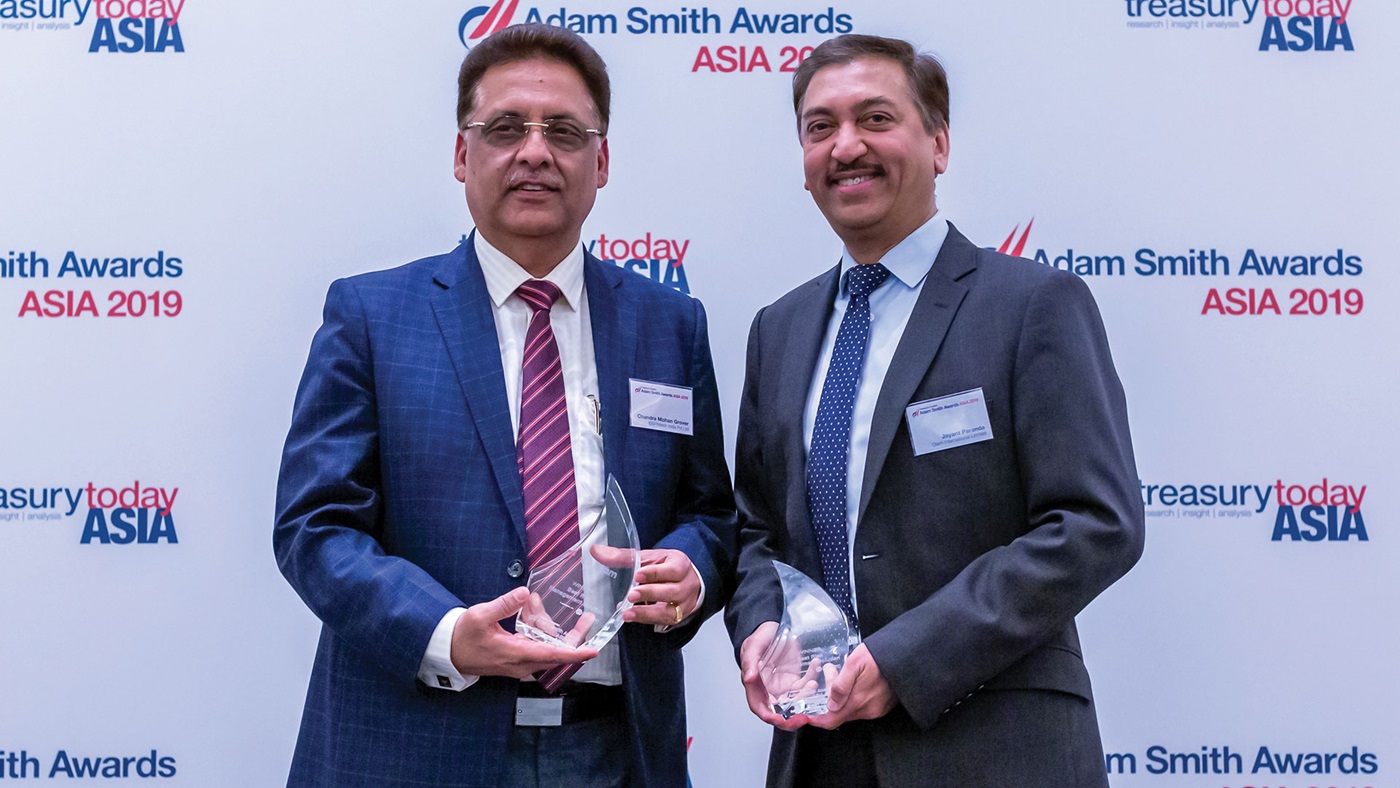
Olam India is one of the leading commodity companies across the sub-continent and enjoys a pan-Indian footprint for ten key products. The company enjoys a strong reputation for managing one of the most diversified agri-commodity supply chains in India. Owing to this position, the company is exposed to significant foreign exchange (FX) and commodity price exposures.
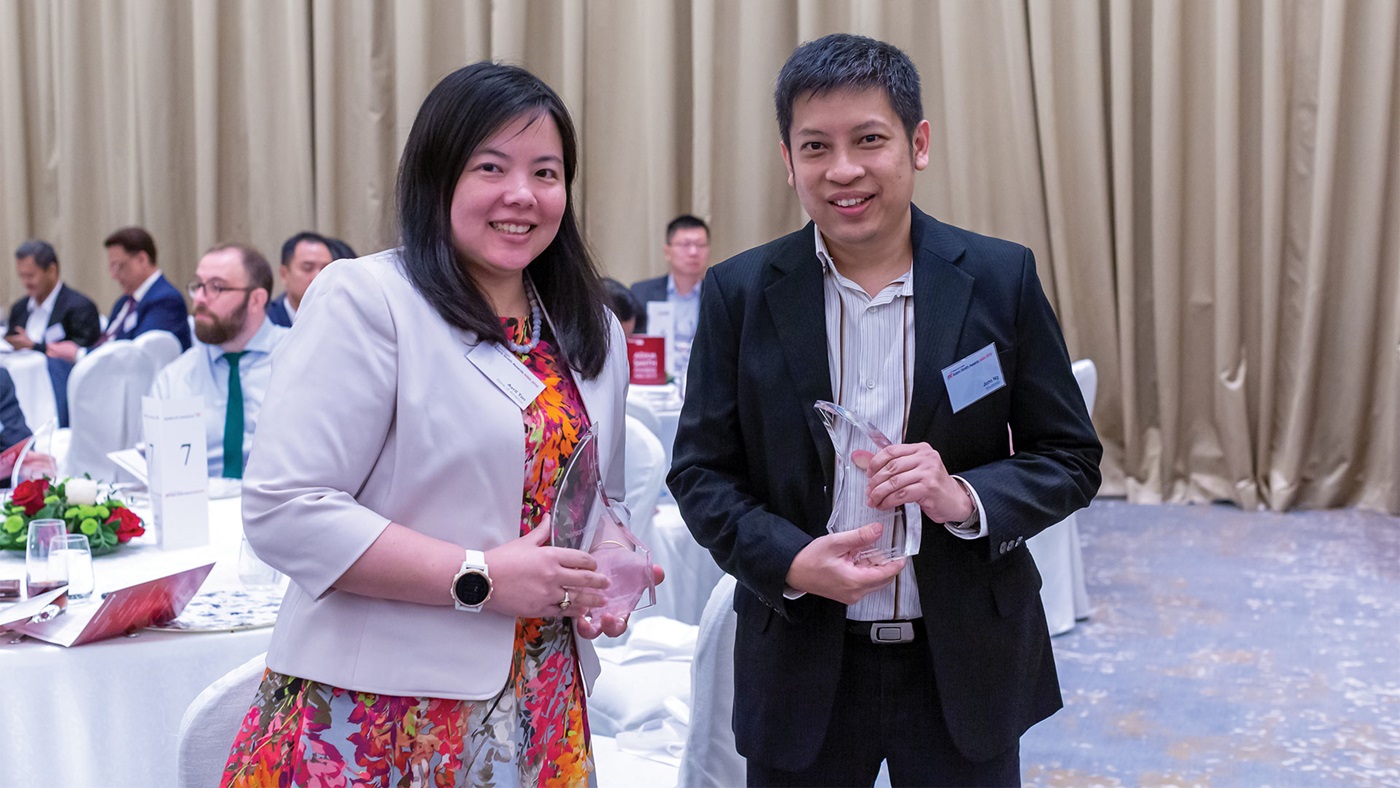
The global healthcare solutions provider Medtronic had worked in partnership with Bank of America for many years, but the relationship began to strengthen in 2015 after the company acquired Irish-headquartered Covidien for US$42.9bn.
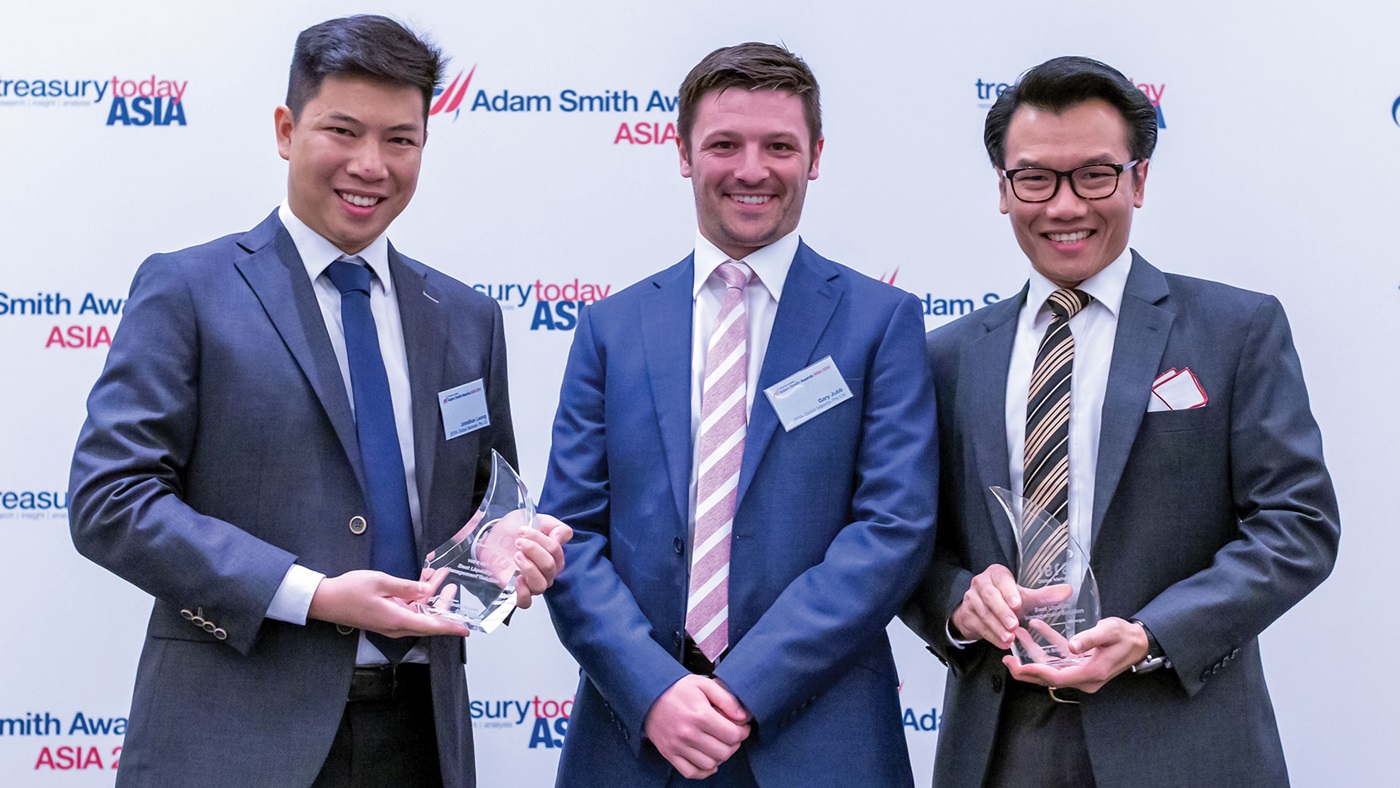
Following the consolidation of its global trading activities and the inception of JERA Global Markets Pte Ltd (JERAGM), the newly-appointed Head of Treasury – Siang Chew – conducted a thorough review of the group’s overall liquidity management, treasury funding, business operations and treasury systems.
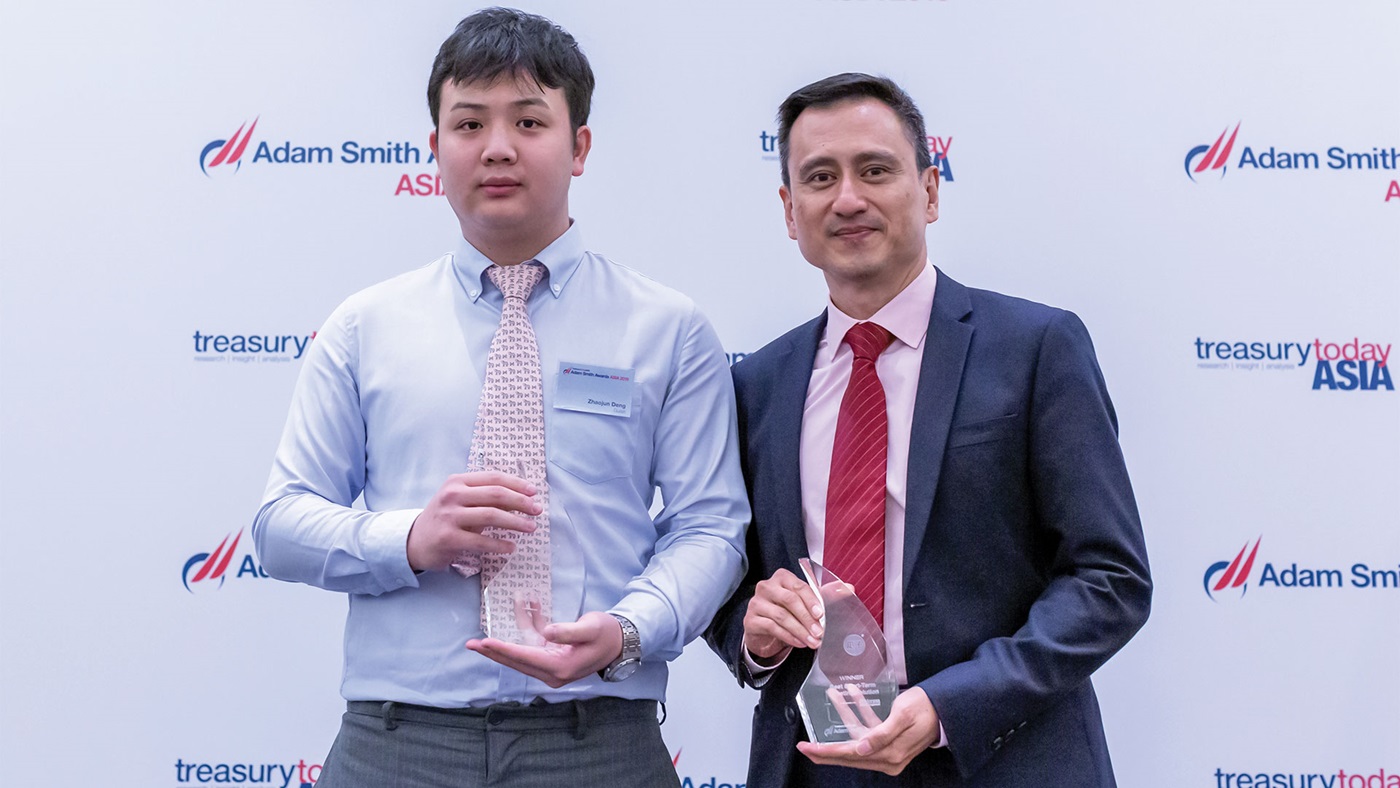
Guazi’s rapid expansion created a cash placement challenge for the treasury function. Its operating cash was unpredictable, whilst its liquidity needs were extremely high. The company has huge outlays to acquire used cars (worth approximately 80% of the cars’ value), receiving cash back only at the point of sale.
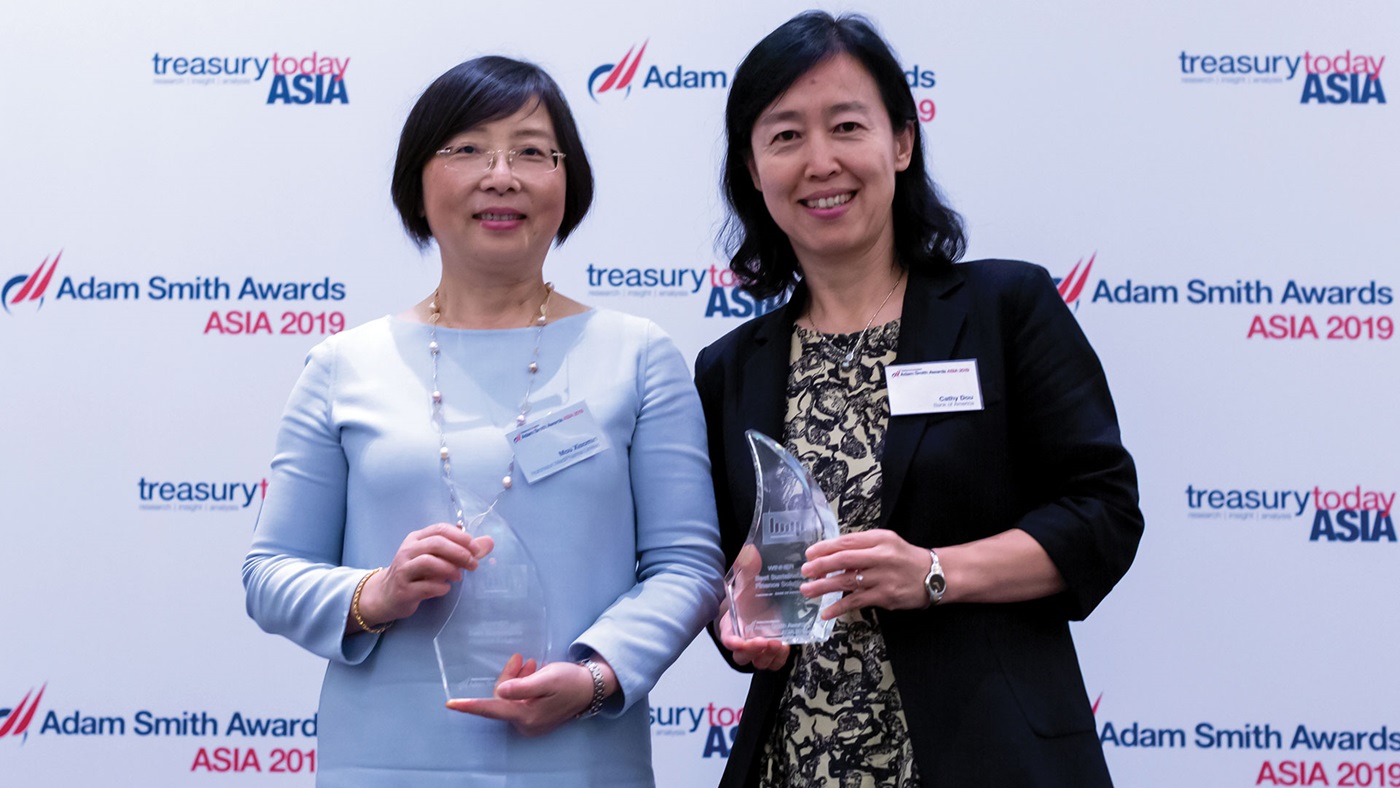
Research on the scale undertaken by Hutchison MediPharma (HMP), with revenues from the new drugs still in the future, requires substantial investment and HMP relies on regular injections of funding from outside the People’s Republic of China (PRC) to ensure stable development for various projects onshore. These could take the form of shareholder loans, capital injections and fundraising in offshore capital markets.
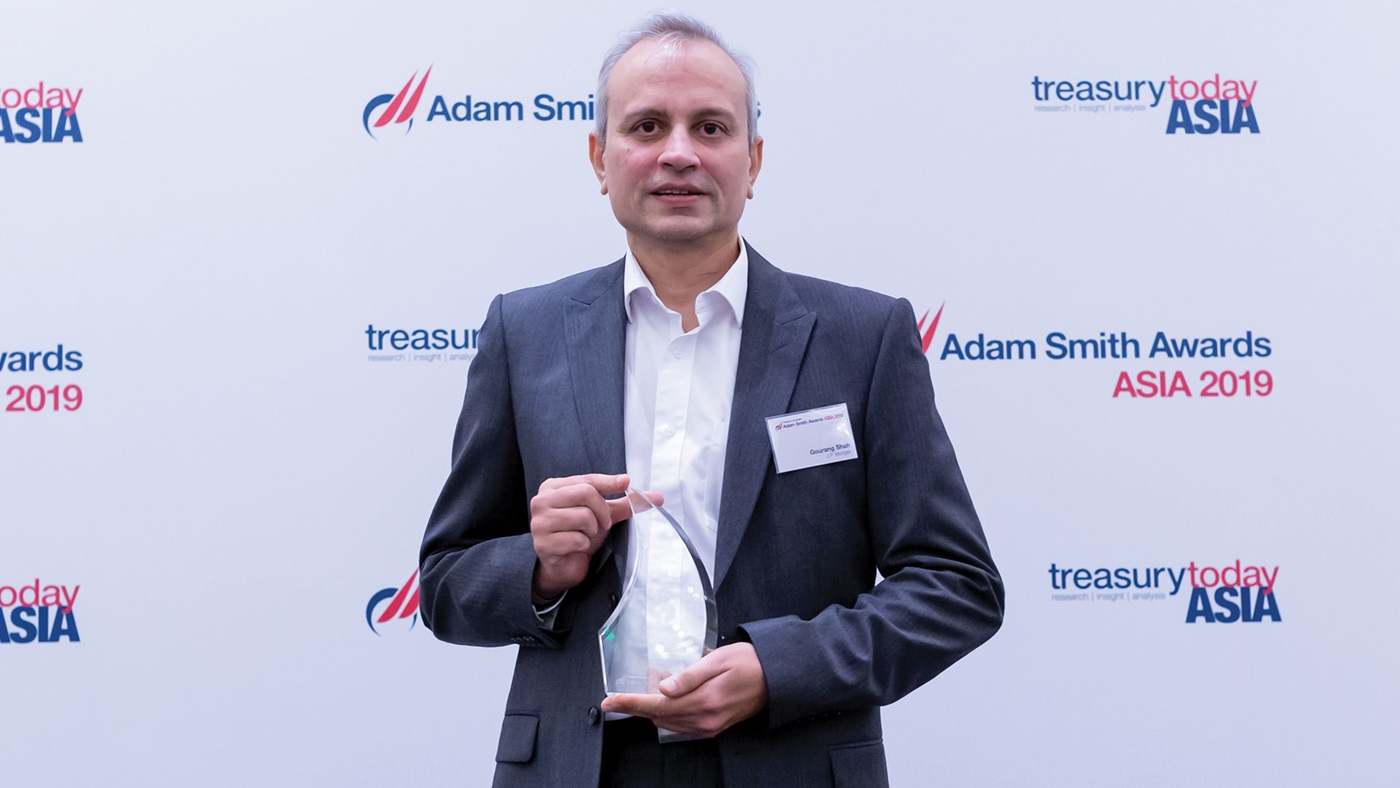
Tencent Financial Technology Group’s digital wallet service, WeChat Pay, has expanded rapidly into overseas markets to support the growing number of Chinese outbound tourists. As of August 2019, WeChat Pay is accepted by retail merchants in 62 markets outside of China.
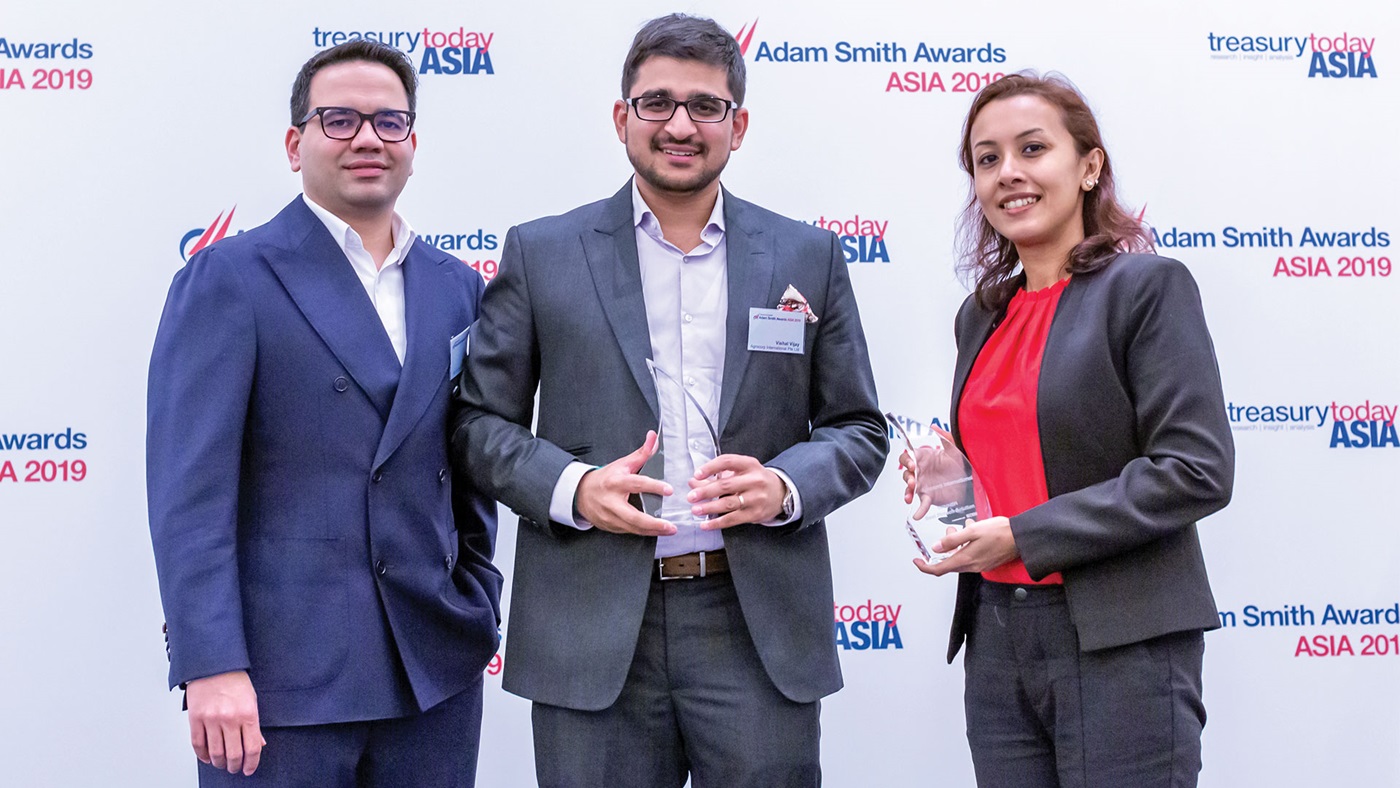
Agrocorp faced three key challenges and wanted to overcome them using blockchain technology. First, the large number of paper documents it exchanged for every trade, across processing plants, truckers, shippers, banks, insurance companies and ports created significant costs and inefficiencies.
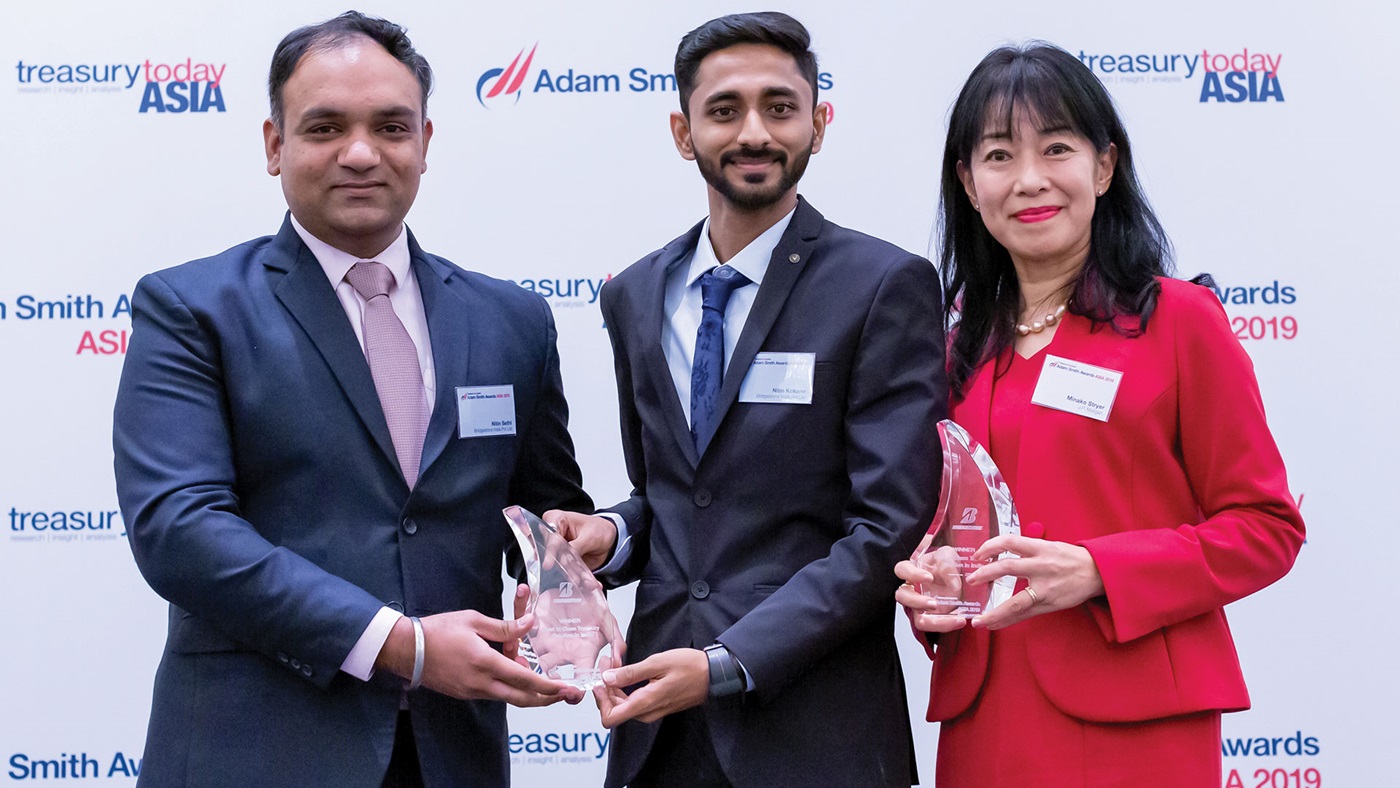
Bridgestone imports the majority of its raw materials from global suppliers and distributes final goods to its wide network of local dealers in India. Prior to August 2018, the company’s cash management processes were extremely manual.
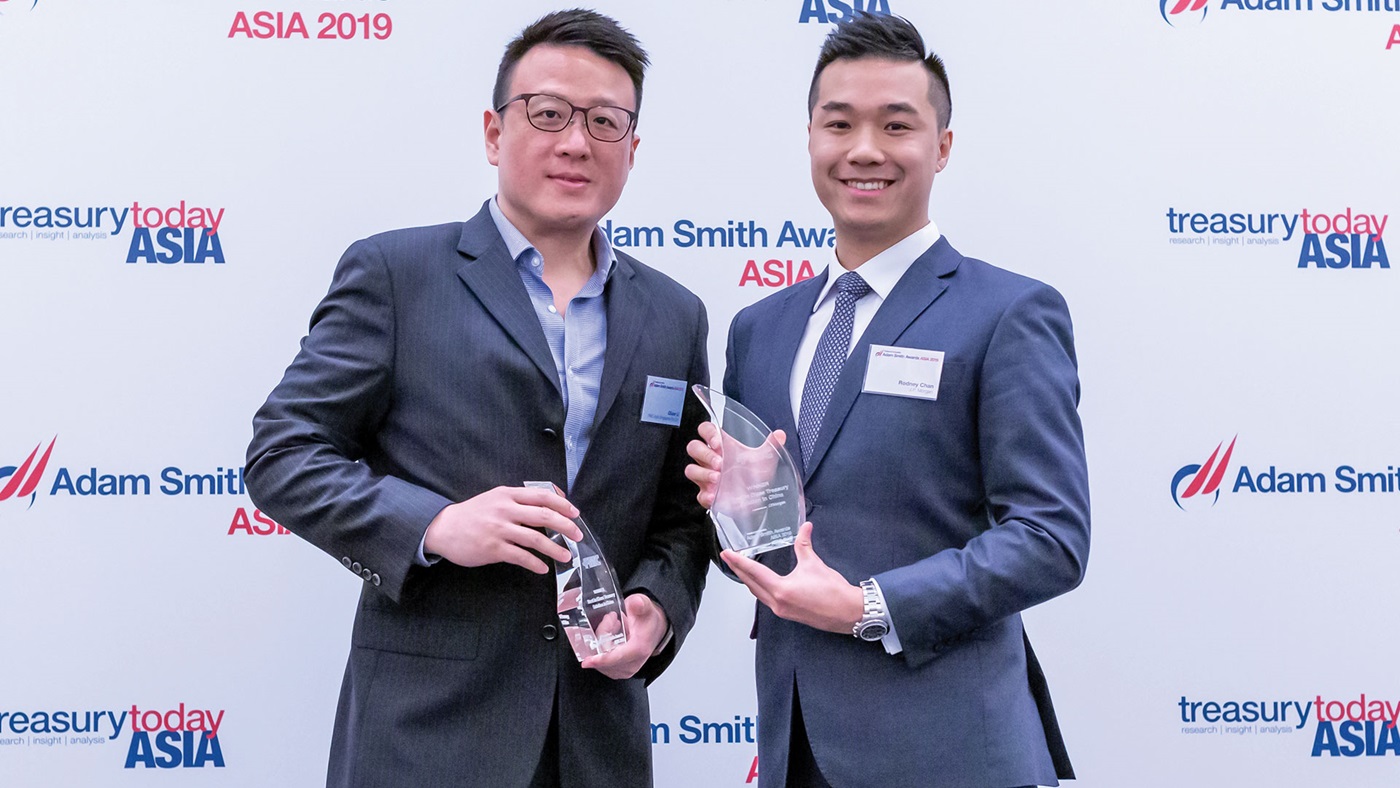

Prior to November 2018, FMC’s approach to liquidity management in Asia Pacific was inefficient. The company operated a highly decentralised treasury structure in the region with each of its 13 markets managing its own cash balances through multiple local banks. This resulted in high levels of idle cash in each market that generated low yields on local currency balances.
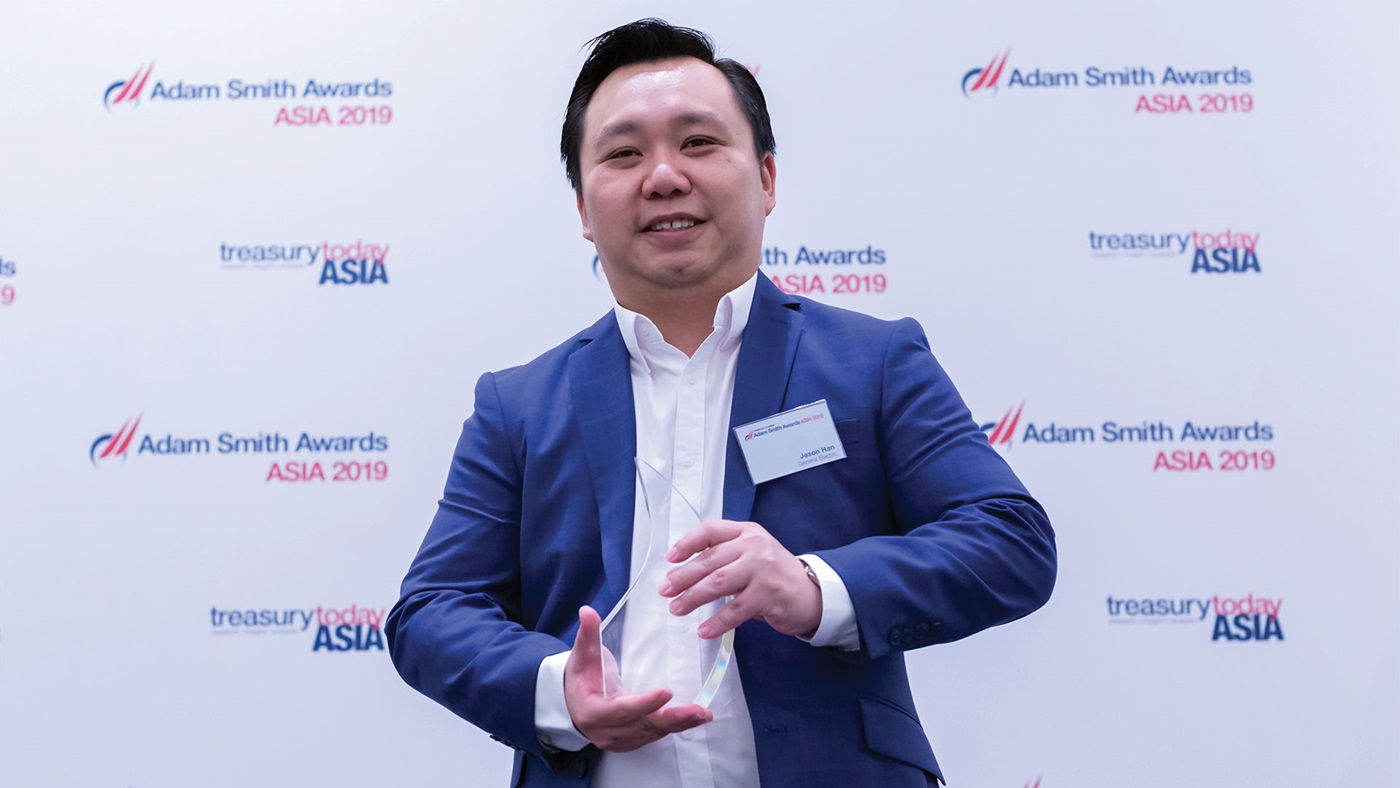
Having graduated from the Singapore Management University with a Bachelor of Business Management, Jason Han began his career as an Operations Specialist for Citco Fund Services. After a few moves, including positions as a Senior Analyst, International Treasury, Asia Pacific (APAC) at SABIC Capital, and Treasurer at Michelin APAC, Jason is now the Assistant Vice President, Regional Liquidity and Banking, APAC at General Electric (GE), Singapore.
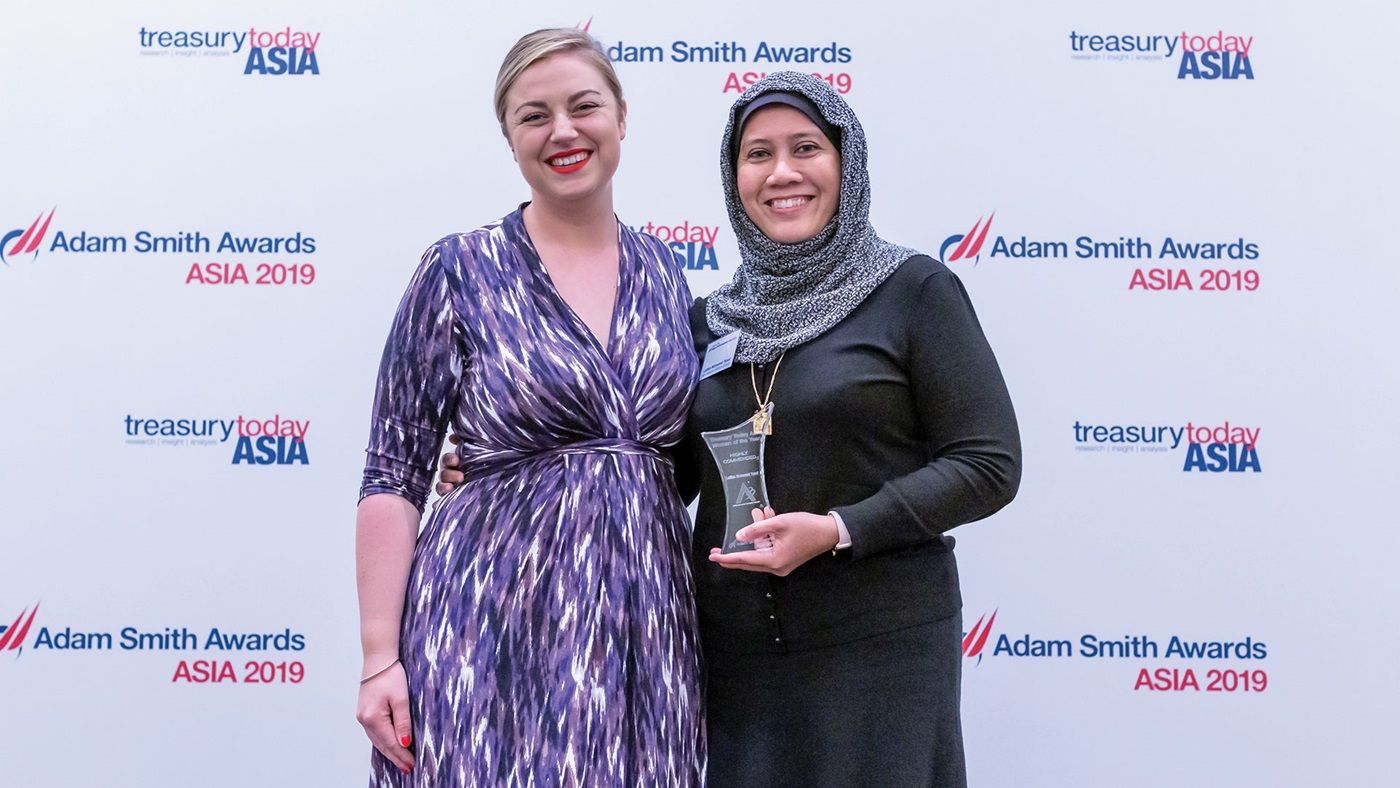

Latifah Mohamed Yusof has been with Astro for over 20 years, with a two-year secondment to the position of CFO of Astro GS Shop Sdn Bhd (AGSB), a joint-venture company between Astro Malaysia Holdings Berhad and GS Home Shopping Inc. of Korea. Prior to this she held roles as the Group Finance Assistant Manager at UMW Corporation Sdn Bhd, a Finance Executive at UMW Toyota Motor Sdn Bhd, and an Audit Assistant at Coopers & Lybrand. To say she has spent her career dedicated to finance is an understatement.
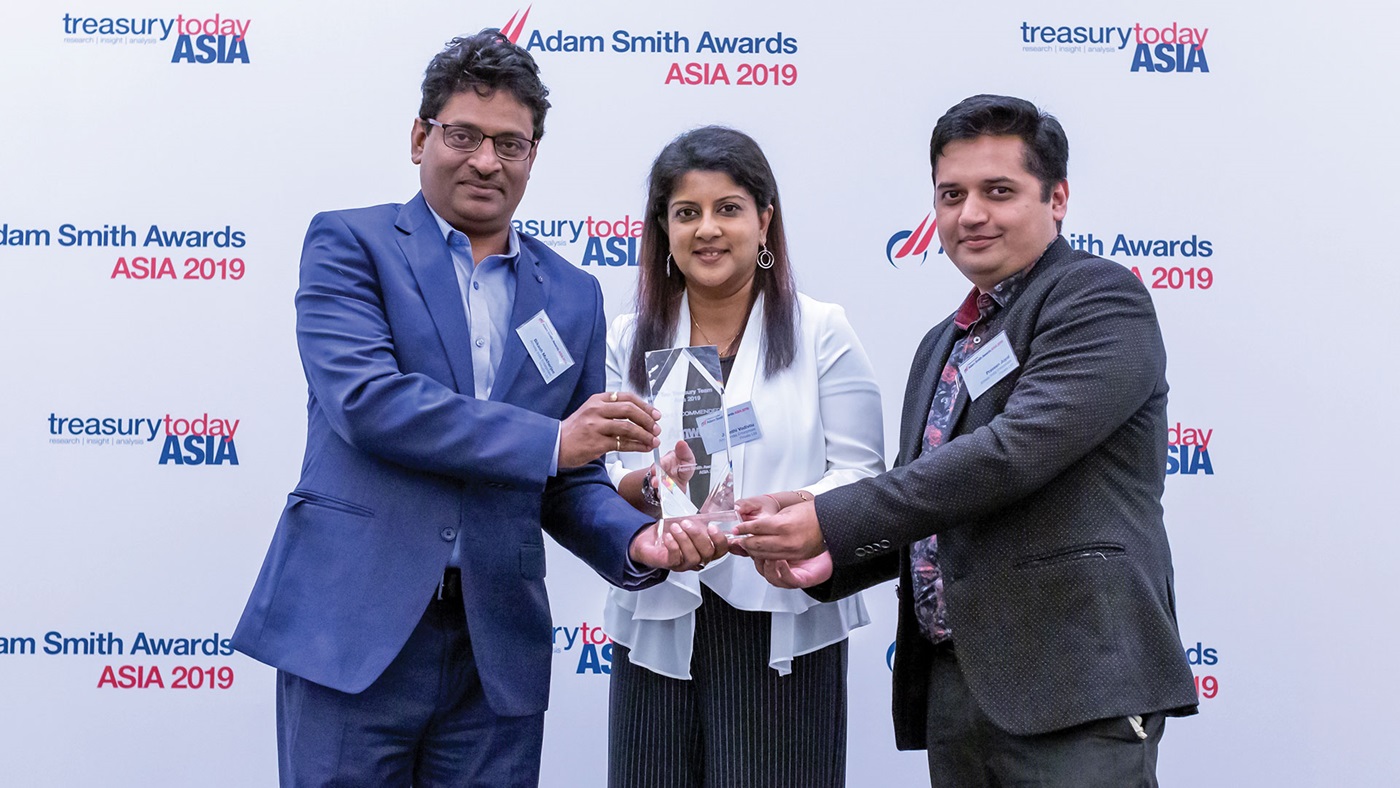

The Amway India treasury team is based at its Head Office in Gurugram Haryana with nine dedicated resources to support the day-to-day business. It has 136 physical shops which include 600-plus cashiers. Amway’s treasury team focuses on projects and new innovations and liaises with cross-functional teams including its manufacturing unit in Madurai. It maintains its banking relationships and collection costs, designs new solutions for placing orders online and offline via ABOs (Amway Business Owner) and delivers working capital and cost optimisation initiatives.
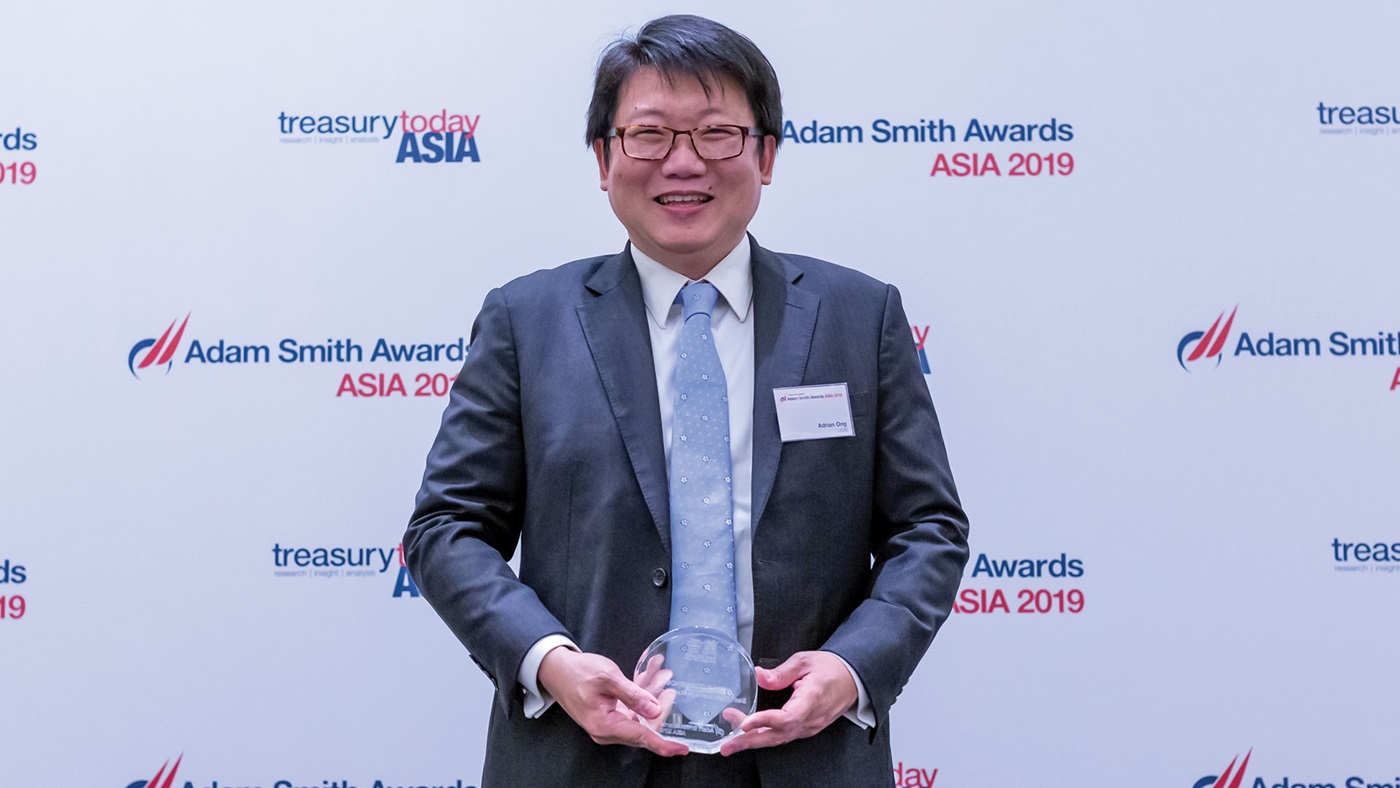
With 12 outlets in Malaysia, biscuit company Ban Heang needed better account visibility for its cash positions, specifically on incoming and outgoing cash. Being a family-run business since it was founded 22 years ago, payments via cheque were the preferred option, rather than online payments. However, the cheque payment method was tedious and ineffective, especially when many payments have to be made to various recipients.
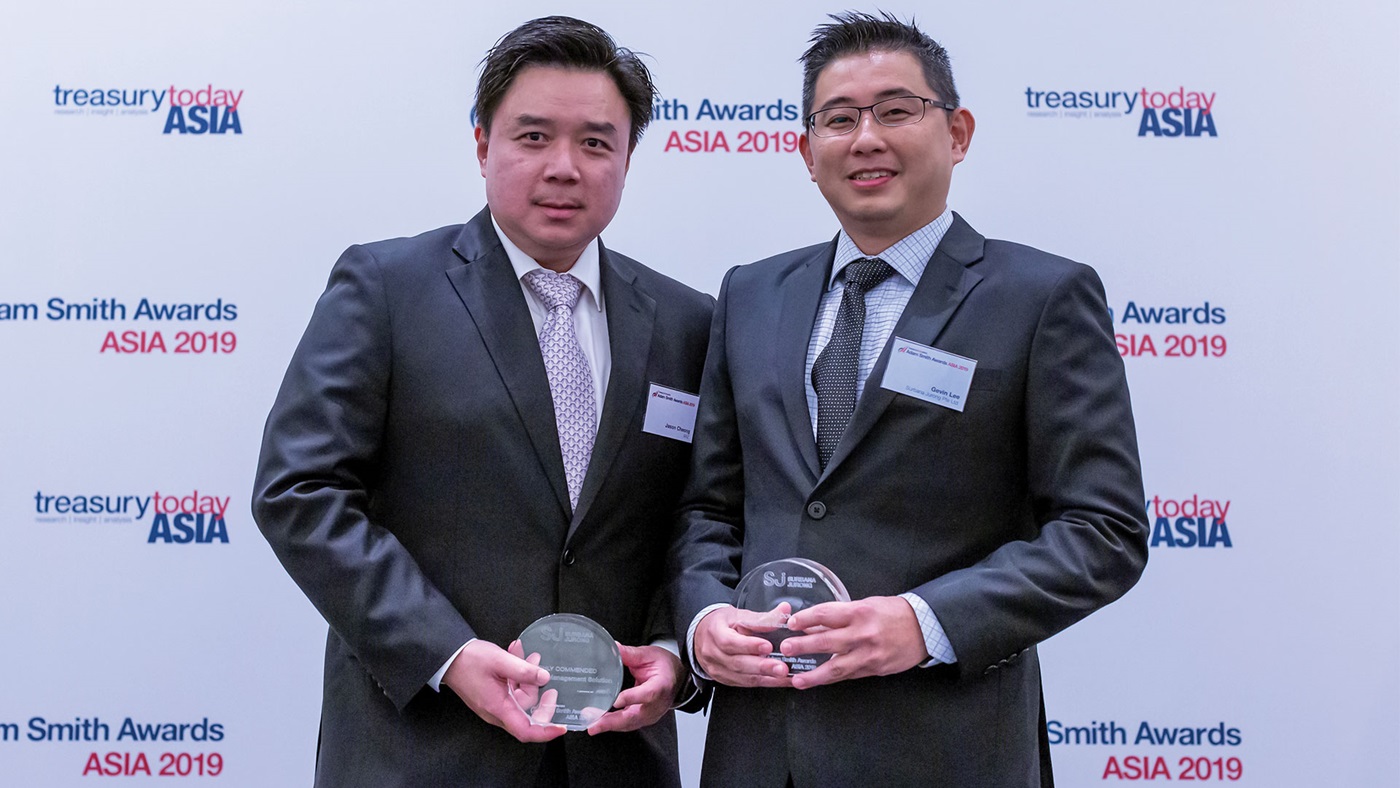
Based in Singapore, Surbana Jurong (SJ) is a multidisciplinary urban infrastructure and management services consultancy firm with a successful track record in project delivery. In recent years it has been rapidly expanding its urban and infrastructure capabilities and extending its geographical reach through organic growth, acquisitions and partnerships.
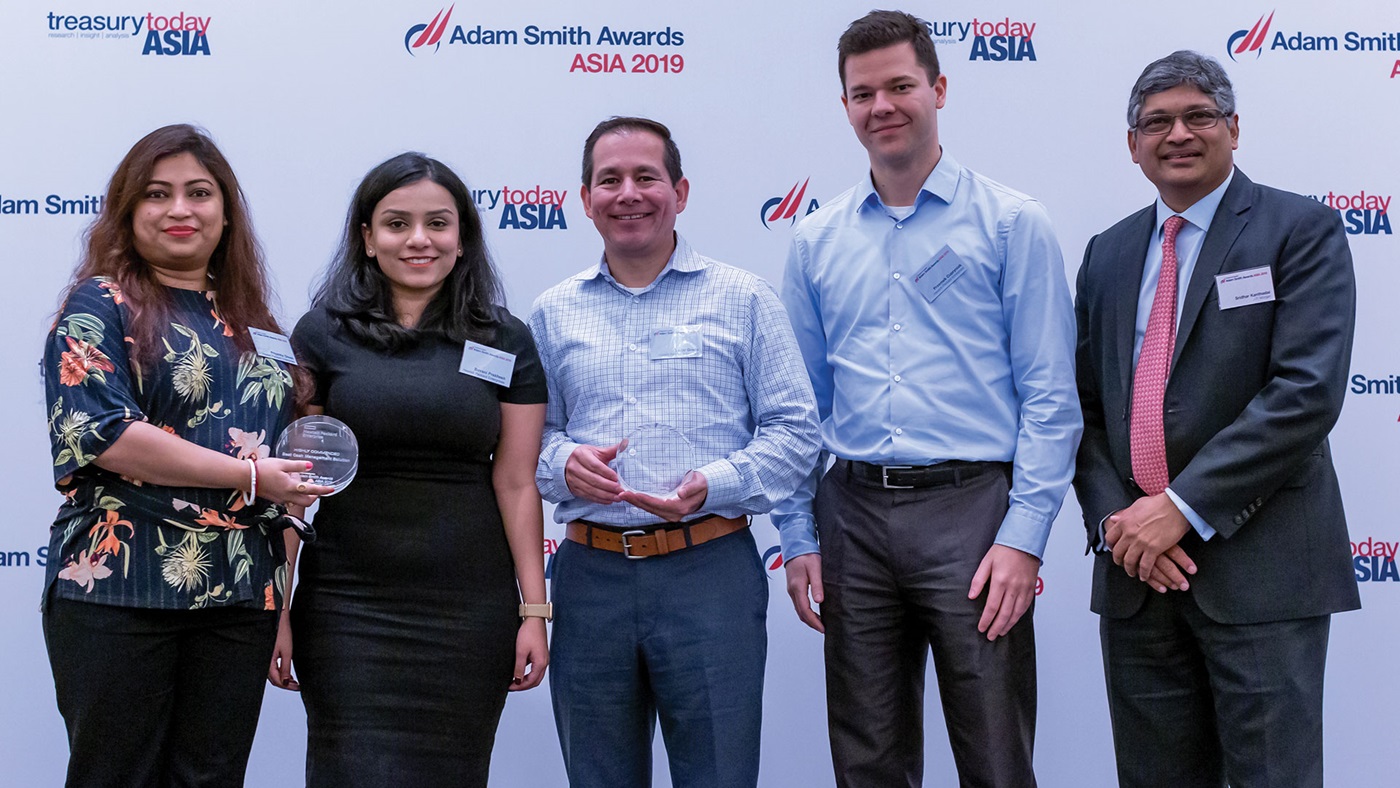
Since its reorganisation in 2015, the Hewlett Packard Enterprise Company (HPE) has been evaluating solutions to transform its treasury architecture which was becoming sub-optimal, due, in part, to the changing treasury and banking landscape, coupled with restructuring activities over the years.
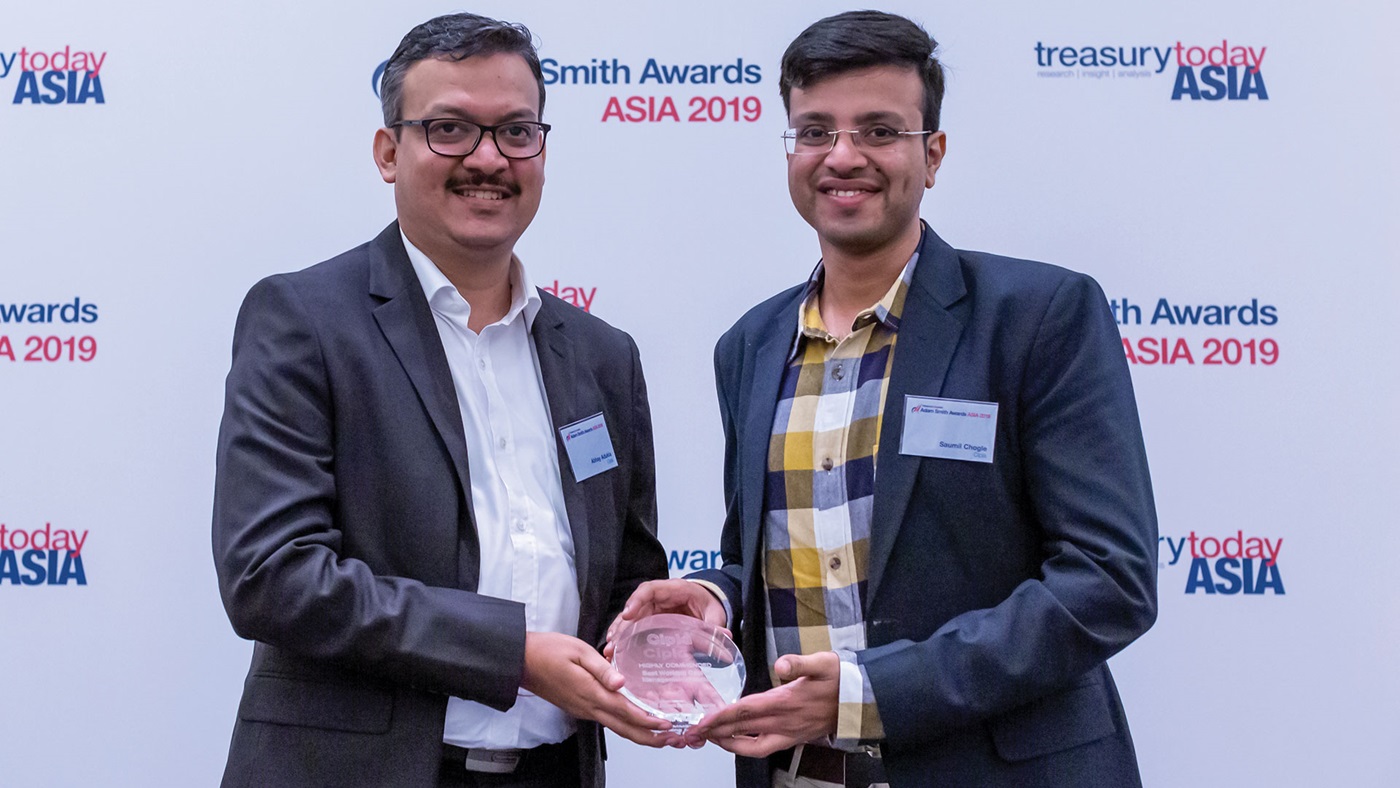
At the heart of Cipla’s philosophy is a commitment to innovation in order to outperform its competitors and deliver on shareholder expectations. This commitment spans its entire business including its treasury team, which wanted to find ways to improve overall working capital performance.
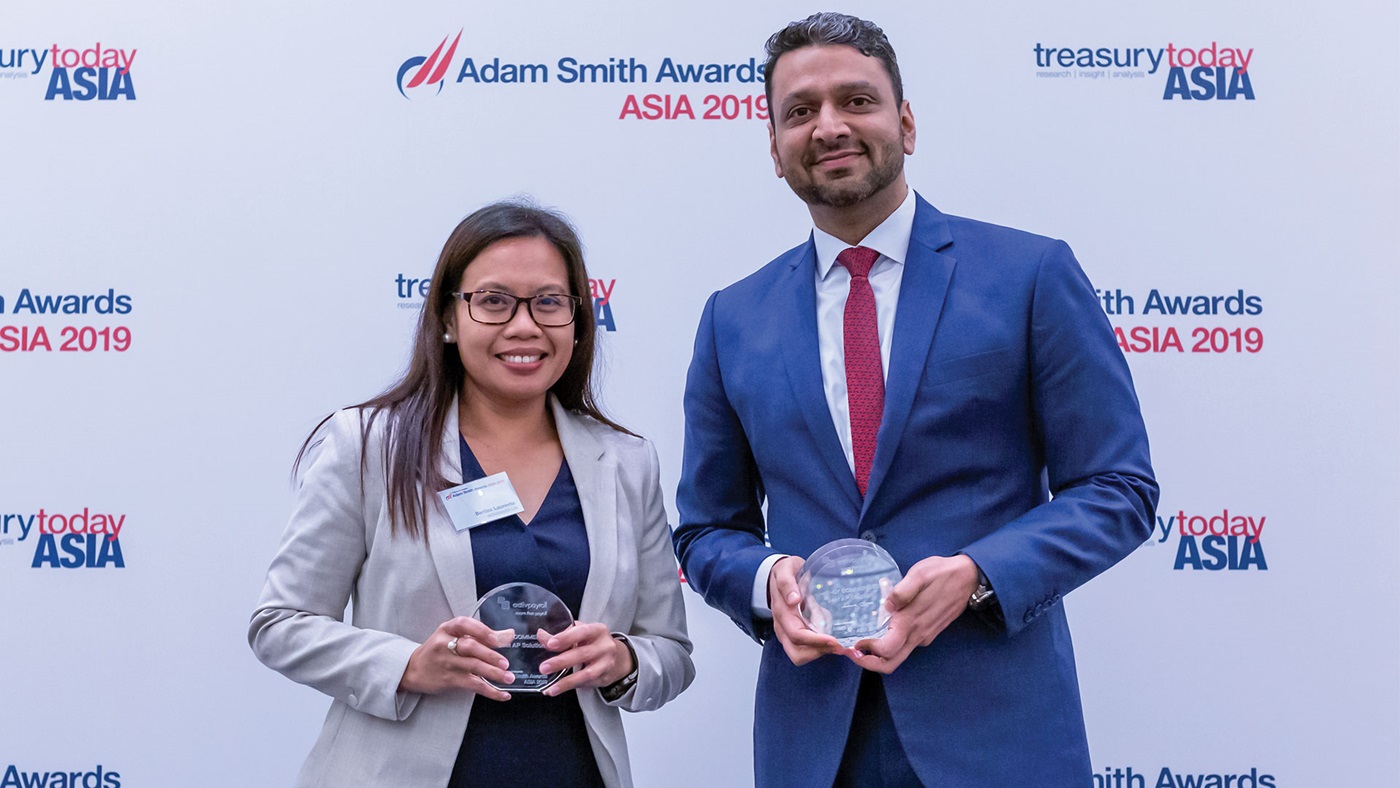
When a leading shipping client needed to make small payments to its employees across the world, it approached activpayroll to take on the challenge. The client had a request to make payroll disbursements to all its seafarers, as well as the accompanying statutory payments.
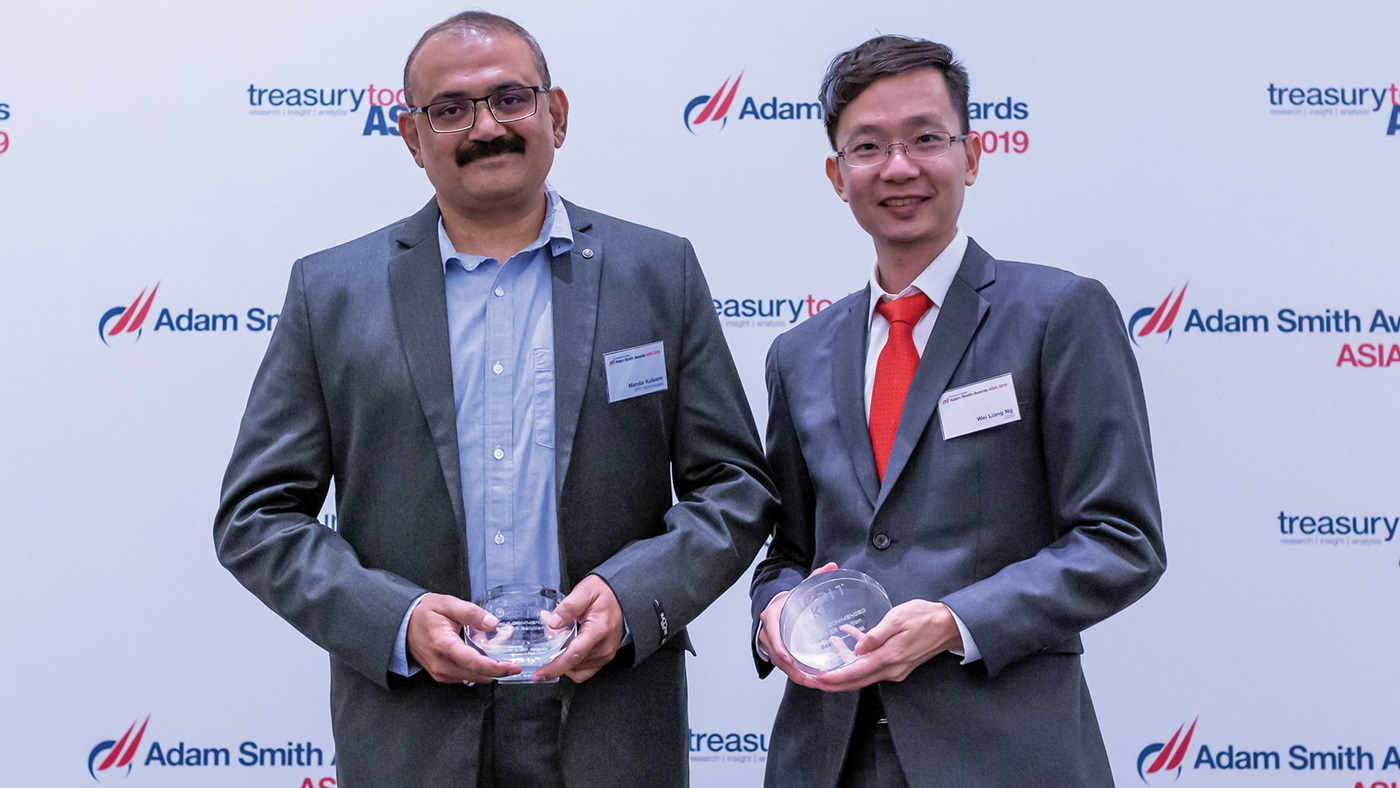
KPIT Technologies went through a very complex structure of merger and demerger in 2018 and the new company started in January 2019. The management set a target to become a debt-free company by the following year, and to bring improvement in days sales outstanding (DSO) and discipline in the overall management of receivables management.
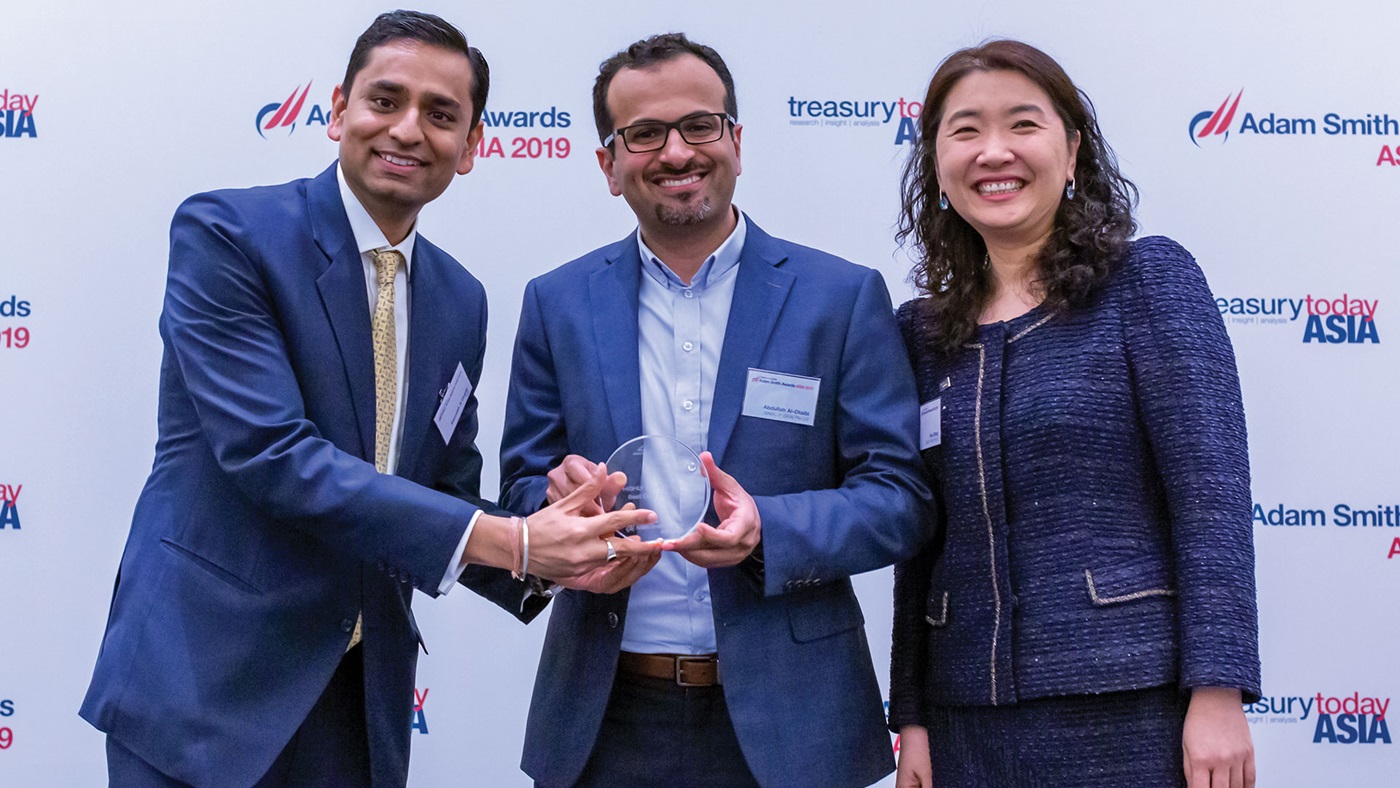
Conventionally, SABIC operates its enterprise resource planning (ERP) system for procurement activity, utilising purchase requests, purchase orders, invoices and payment by the finance function across its leading Asian operations, which spans Singapore, India, Australia, Malaysia, Taiwan, Hong Kong, Thailand and Indonesia.
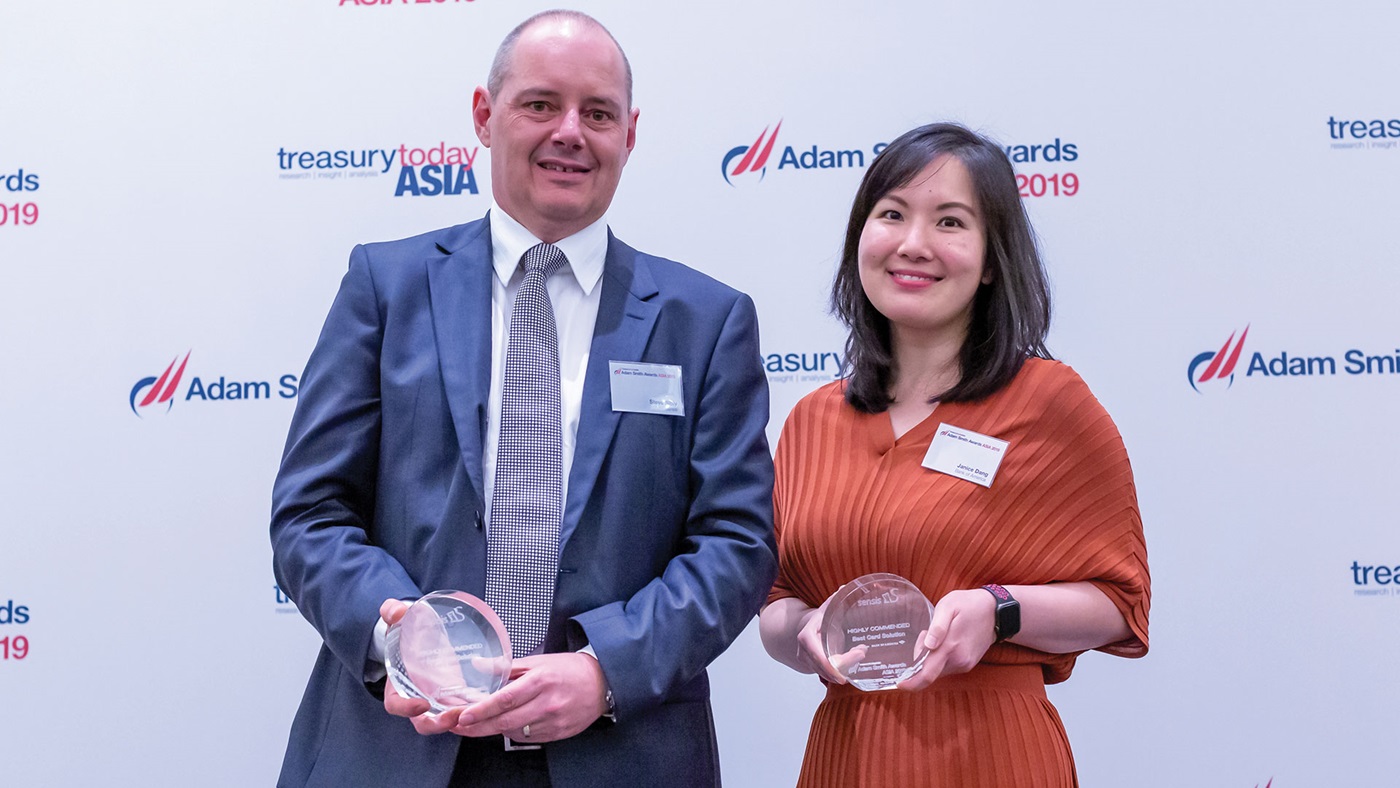
Sensis is an Australian digital marketing company, specialising in digital platforms and search engine marketing, as well as providing listings for businesses in both digital and phone book directories. Its well-known brands include the Yellow Pages and White Pages.
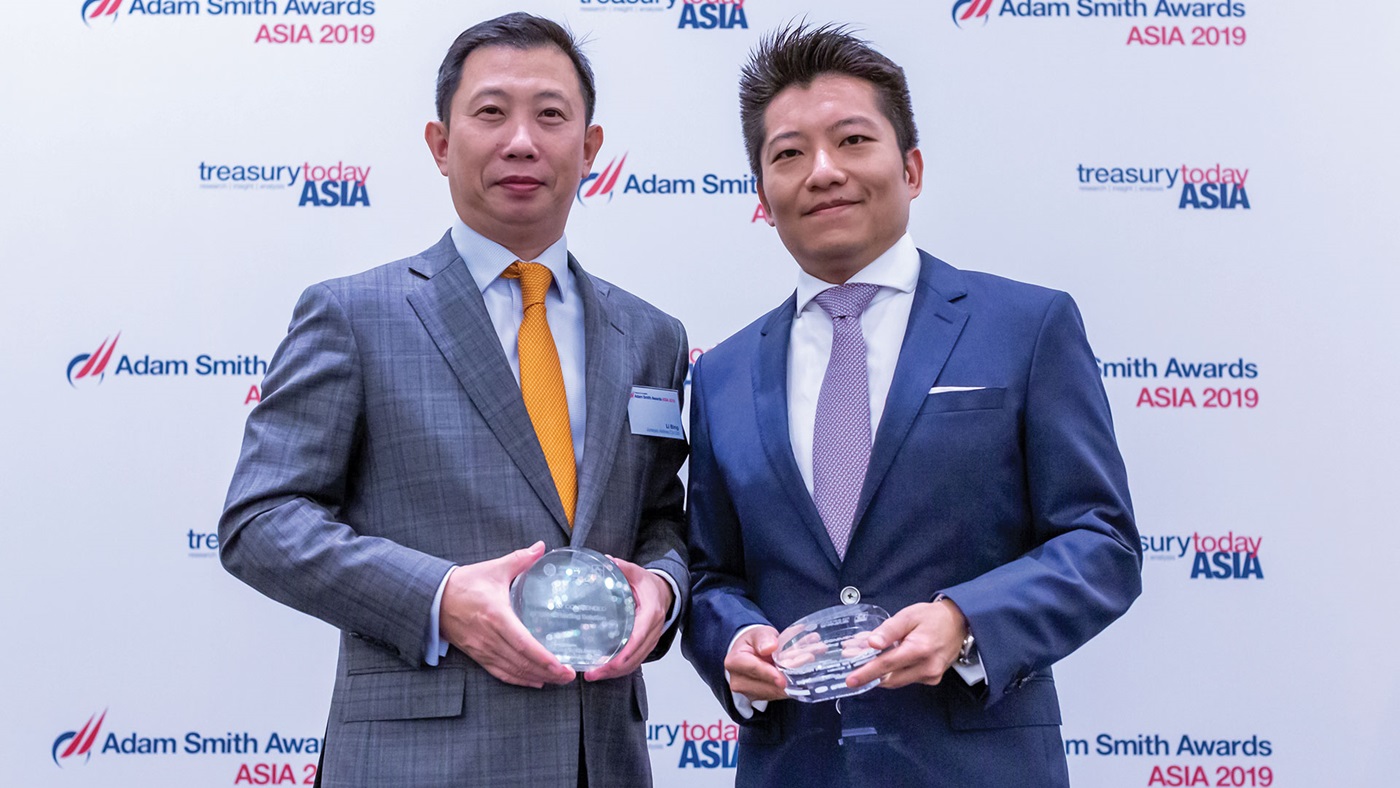

The icon of Juneyao Airlines Co Ltd (hereinafter referred to as Juneyao Air) as an enterprise is an Auspicious Phoenix, an international interpretation of Chinese traditional cultures to express a century-old company and its devotion to providing the best service for its customers at home and abroad.
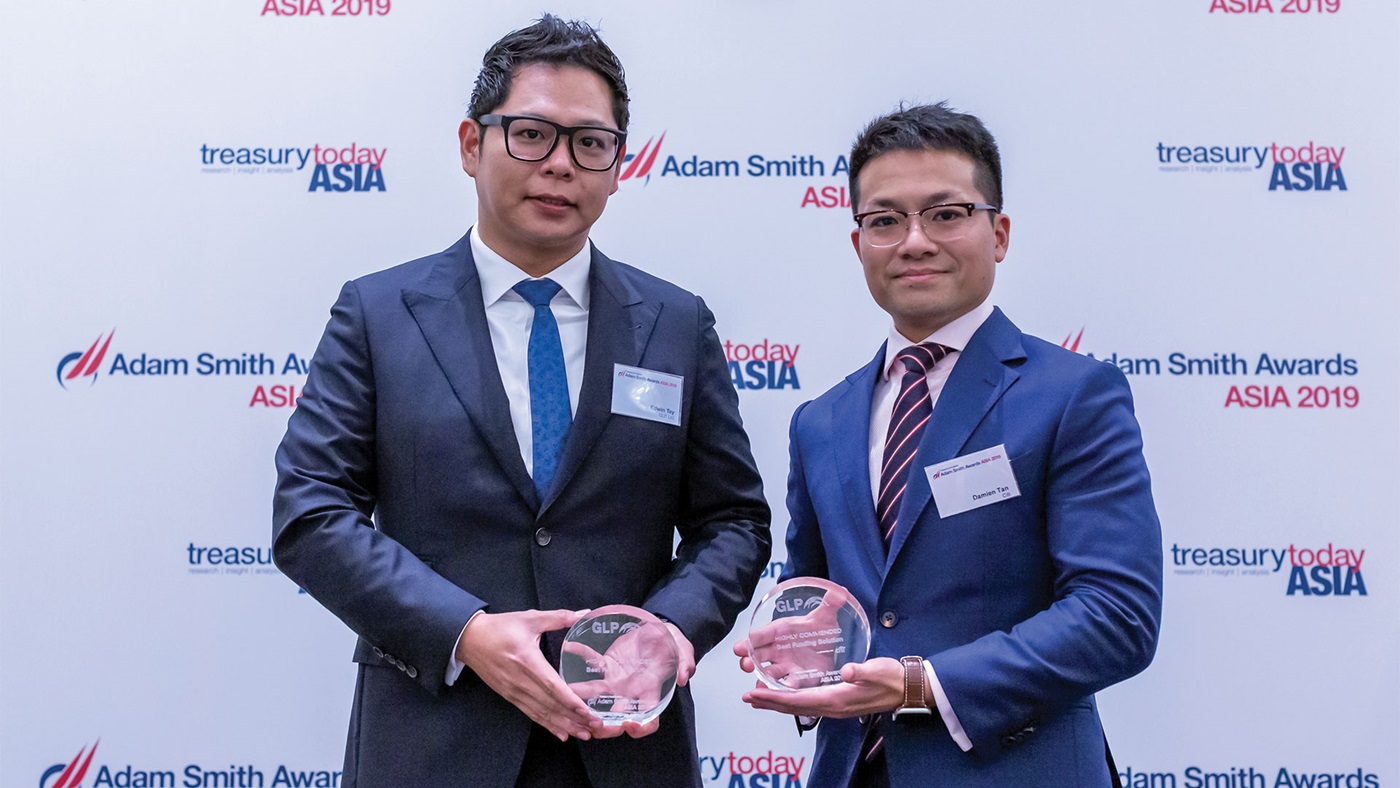
GLP Pte Ltd incurred US$2.1bn of incremental debt following its privatisation event which closed in January 2018. GLP was subsequently downgraded to “negative outlook” by Moody’s, reflecting the significant increase in debt incurred post-privatisation and GLP’s acquisition of a European logistics portfolio, Gazeley.
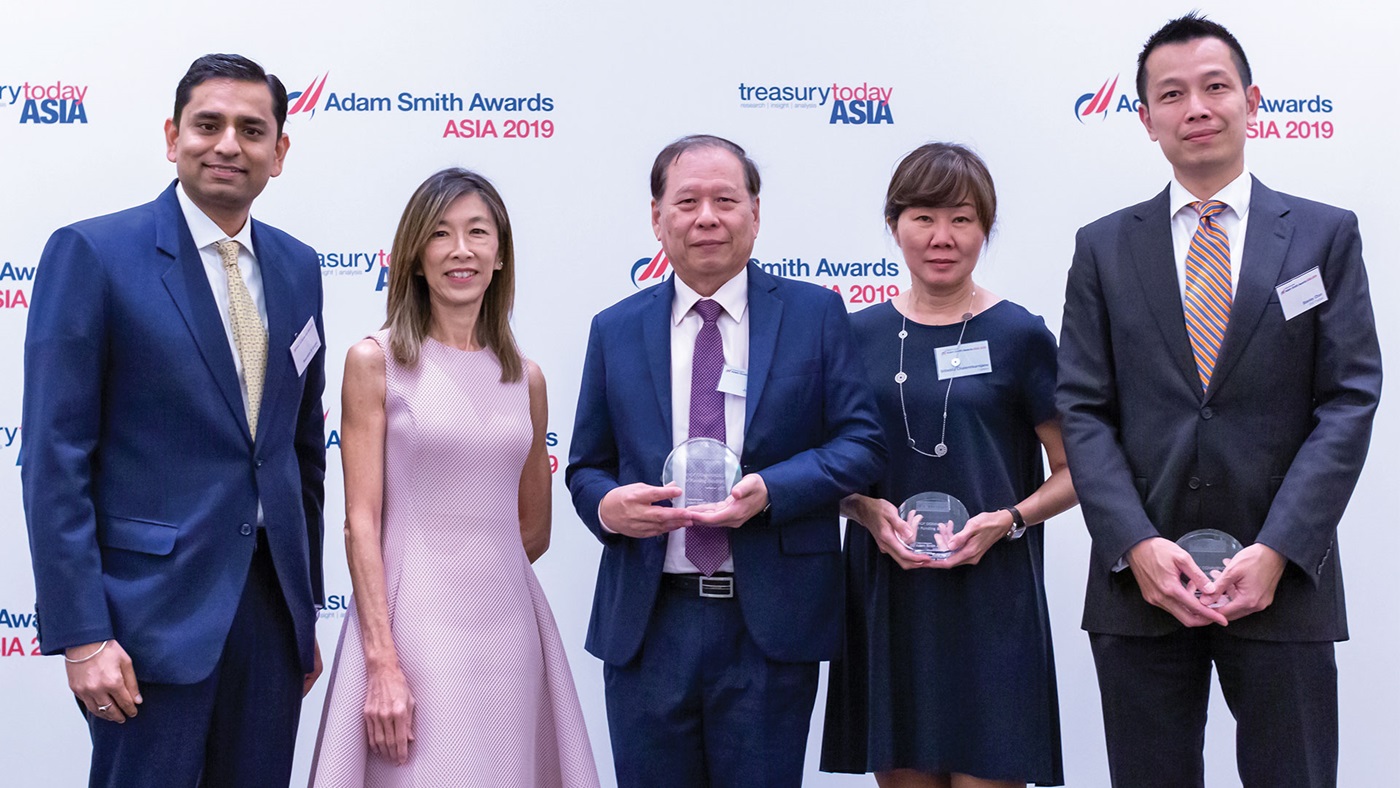
Since 2005, Lenovo has been financing its distributor receivables portfolio through IBM Global Financing (IGF), a captive financing subsidiary of International Business Machines Corp (IBM). The IGF financing platform handles credit underwriting, dispute resolution and collection services, with approximately 400 people.
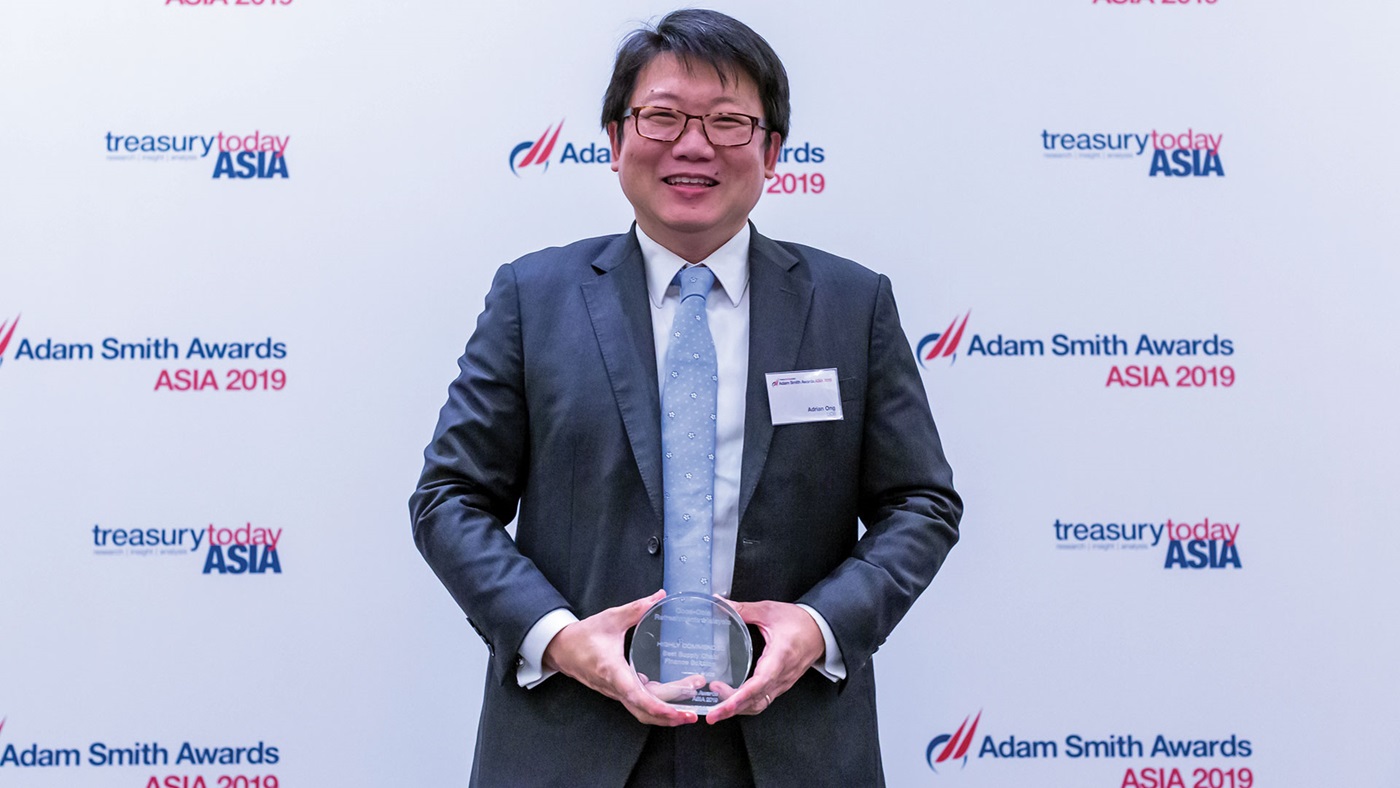
Coca-Cola Refreshments Malaysia’s principal activities include marketing and distributing over 20 products, ranging from Classic Coke and zero-calorie sparkling beverages, to zero-calorie juices, teas and water.
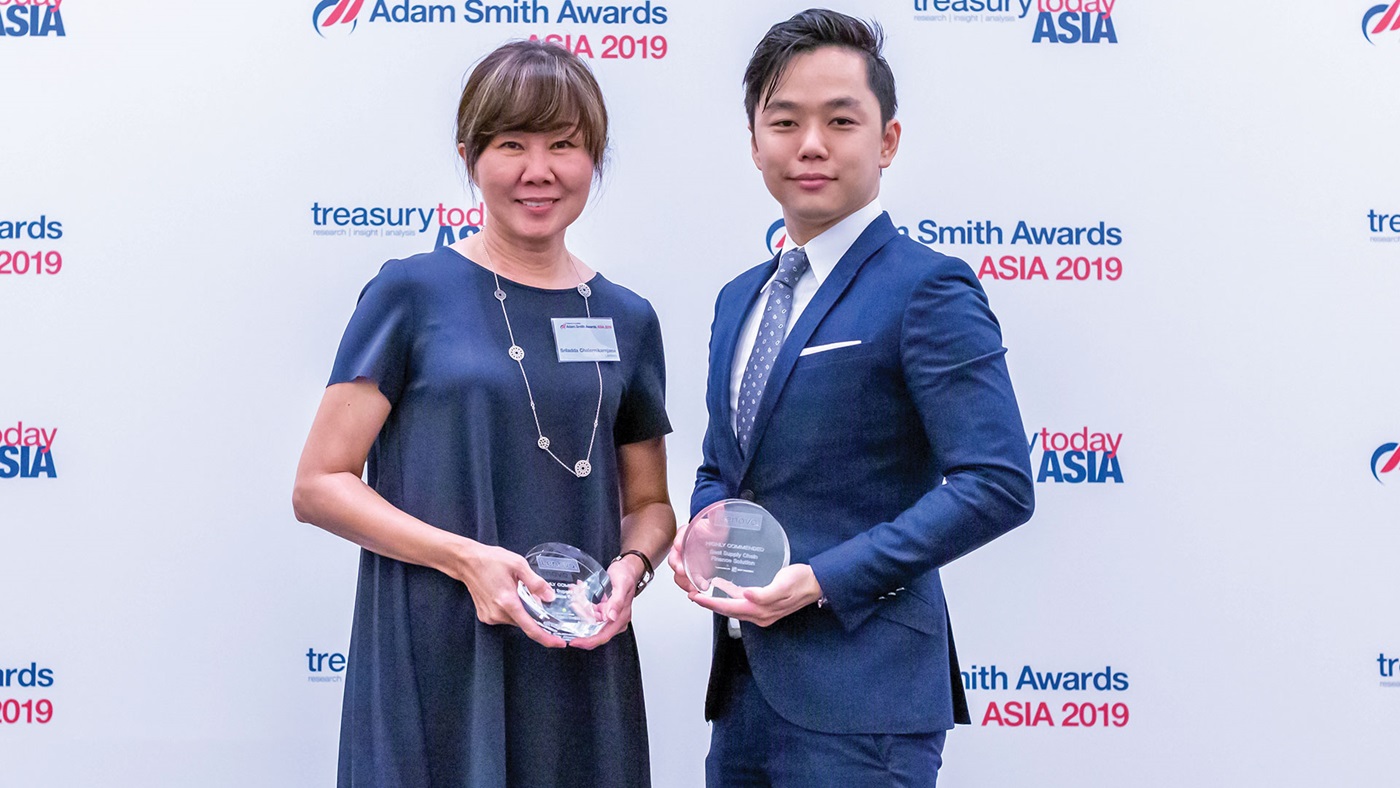
Lenovo needed to restructure its existing trade receivables securitisation programme. However, the process would result in Lenovo being unable to utilise the programme for an expected timeframe of approximately three months.
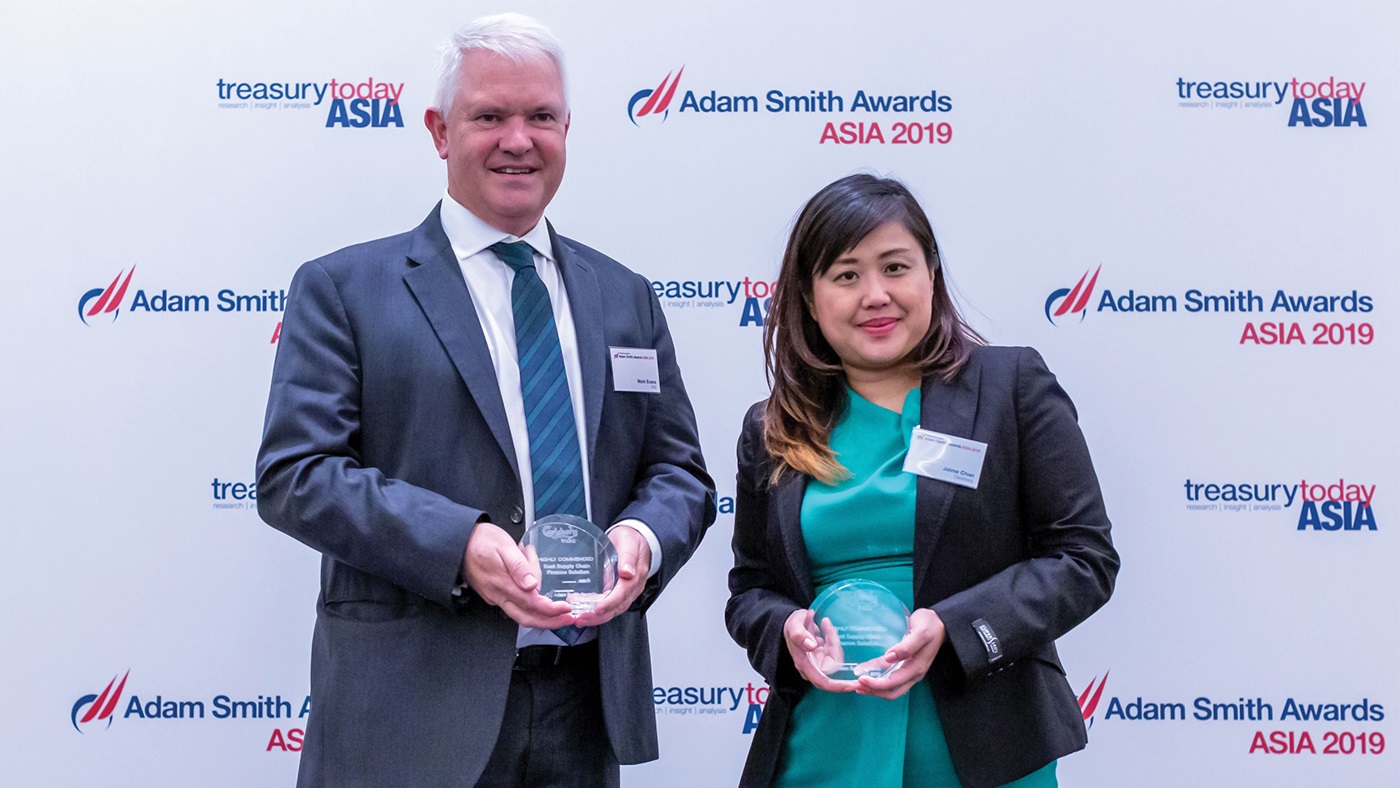
As one of the most recognised and established brewers in the world, one of Carlsberg’s key objectives was to support its suppliers (mostly SMEs), by providing access to a lower cost of funds. It also wanted to extend SMEs payable days for improving liquidity, ratios and better balance sheet management.
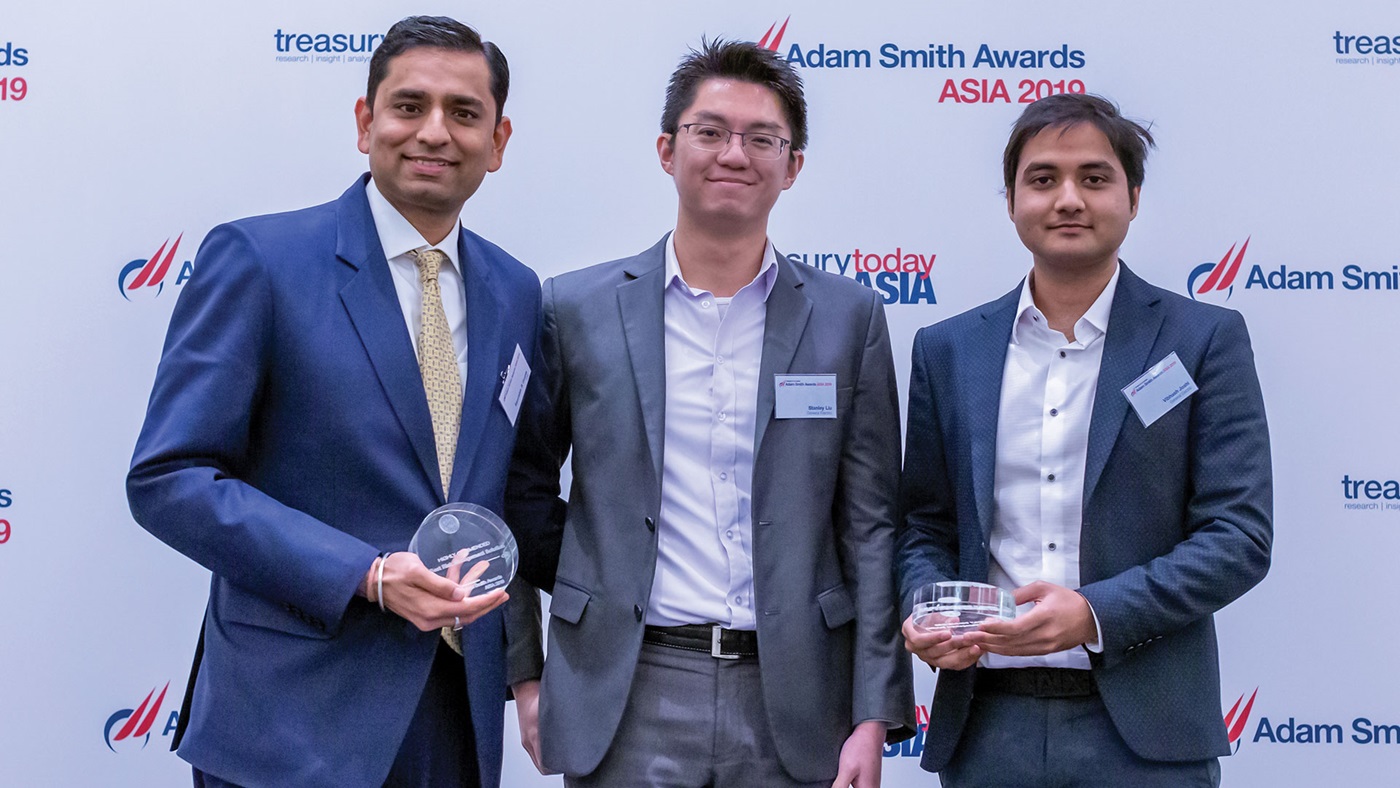
Over the past three years, General Electric (GE) has embarked on a global, multi-phased cash and risk transformation project. The aim of the programme was to unlock and repatriate cash from across the business and identify and manage risk more effectively at a group level.
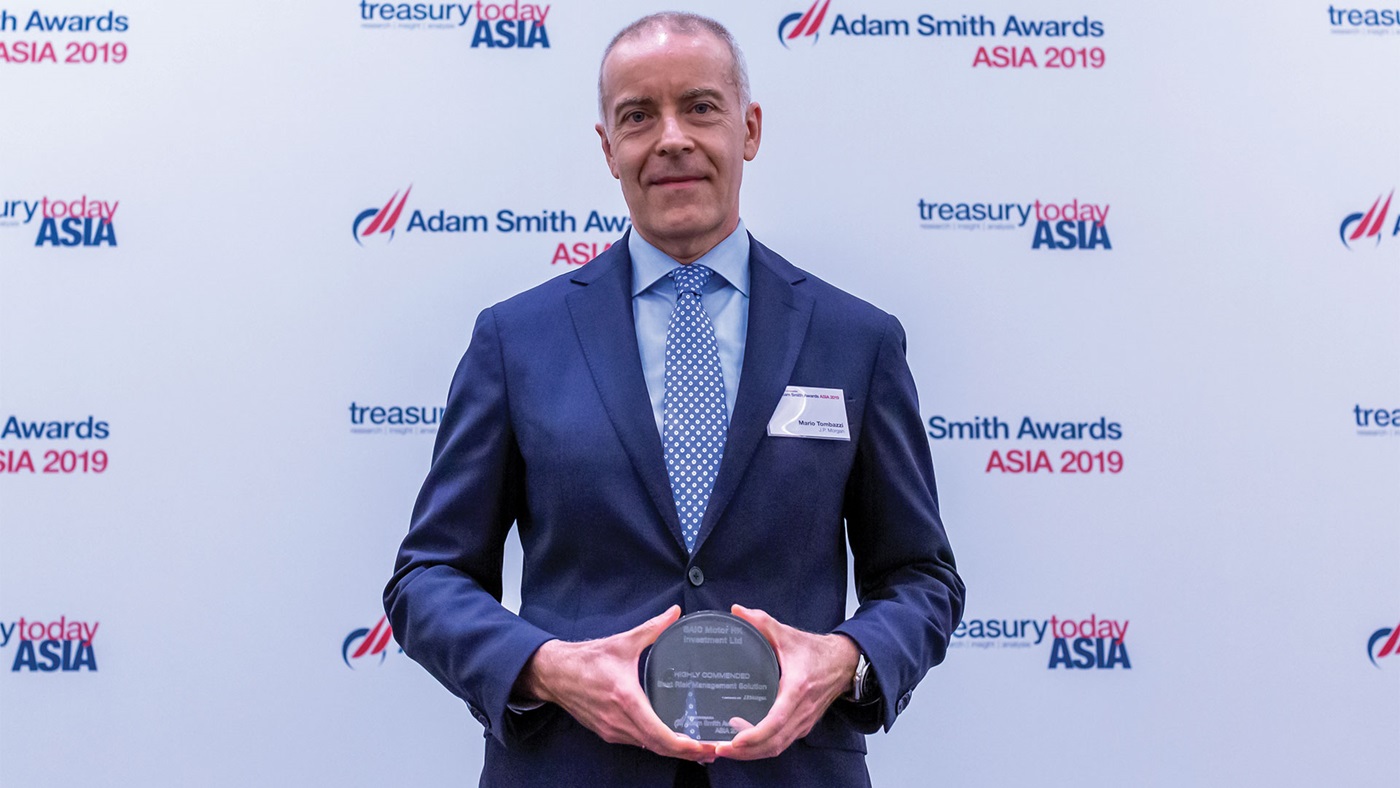
As SAIC Motor expanded into new regions, managing its liquidity and working capital funding across the different markets became increasingly challenging.
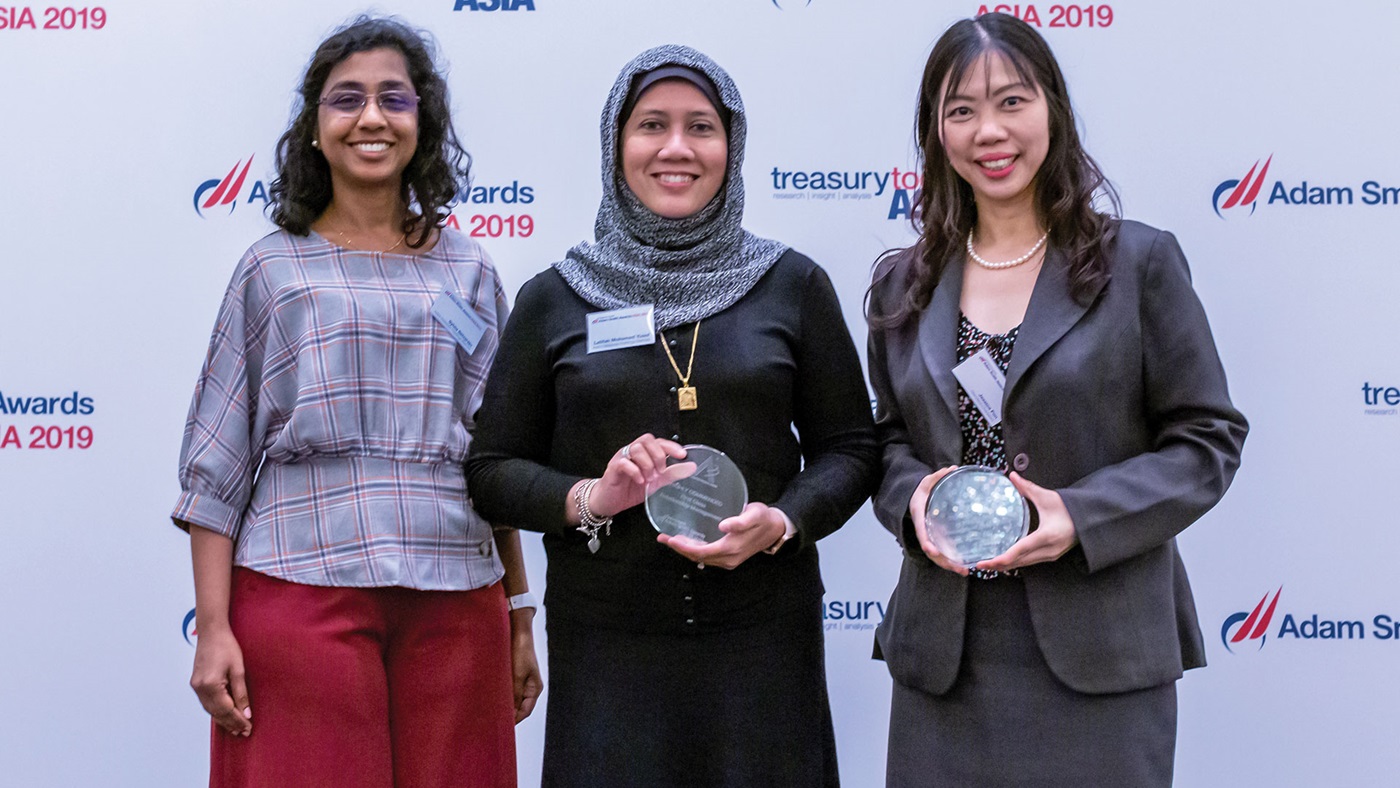

In 2016, Astro Malaysia’s Group Treasurer and her team started to assess the set-up of an in-house bank (IHB) to further enhance working capital and the transparency of financial flows and cash positions.
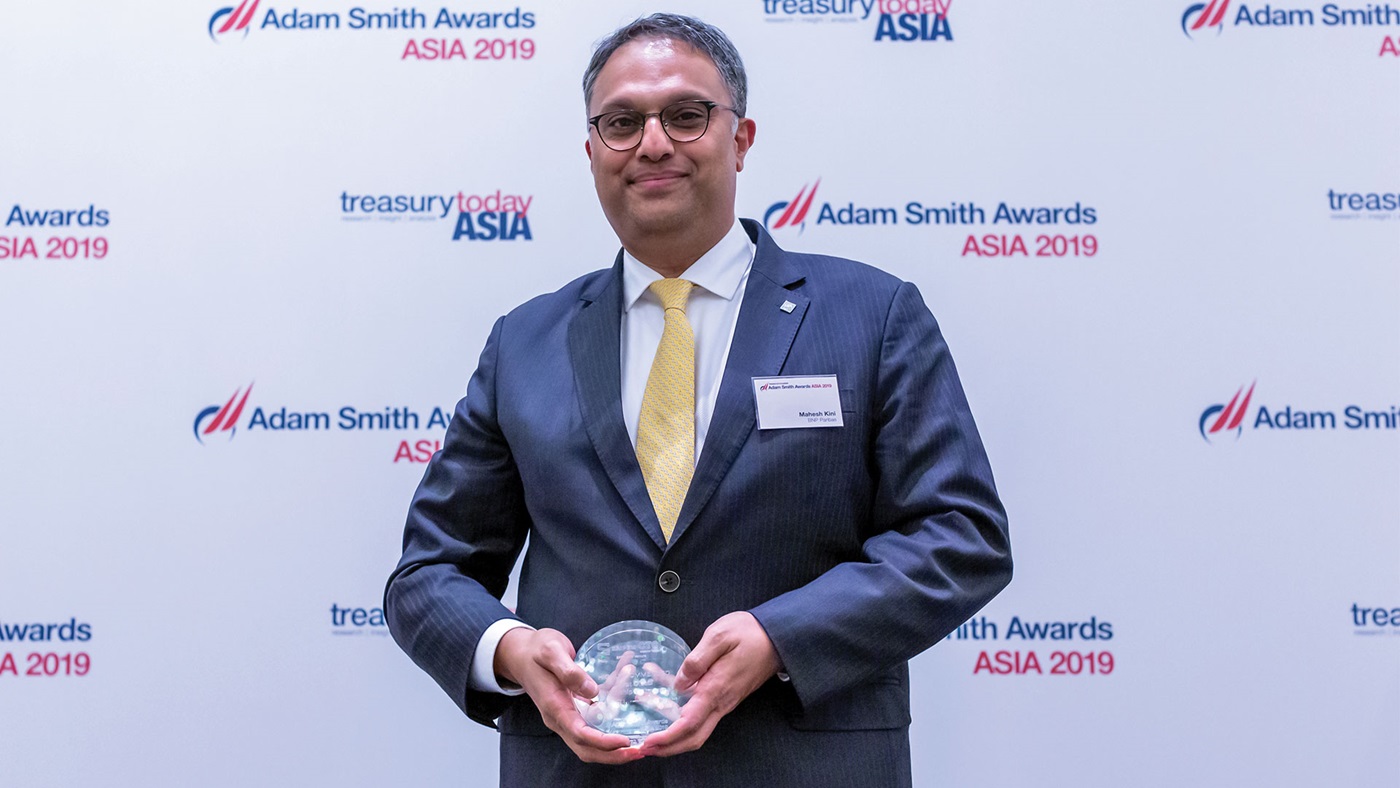

PTT Public Company Limited is a Thai state-owned SET-listed oil and gas company. Founded in 1978, it owns extensive submarine gas pipelines in the Gulf of Thailand, a network of LPG terminals throughout the kingdom and is involved in electricity generation, petrochemical products, oil and gas exploration and production, and gasoline retailing businesses.
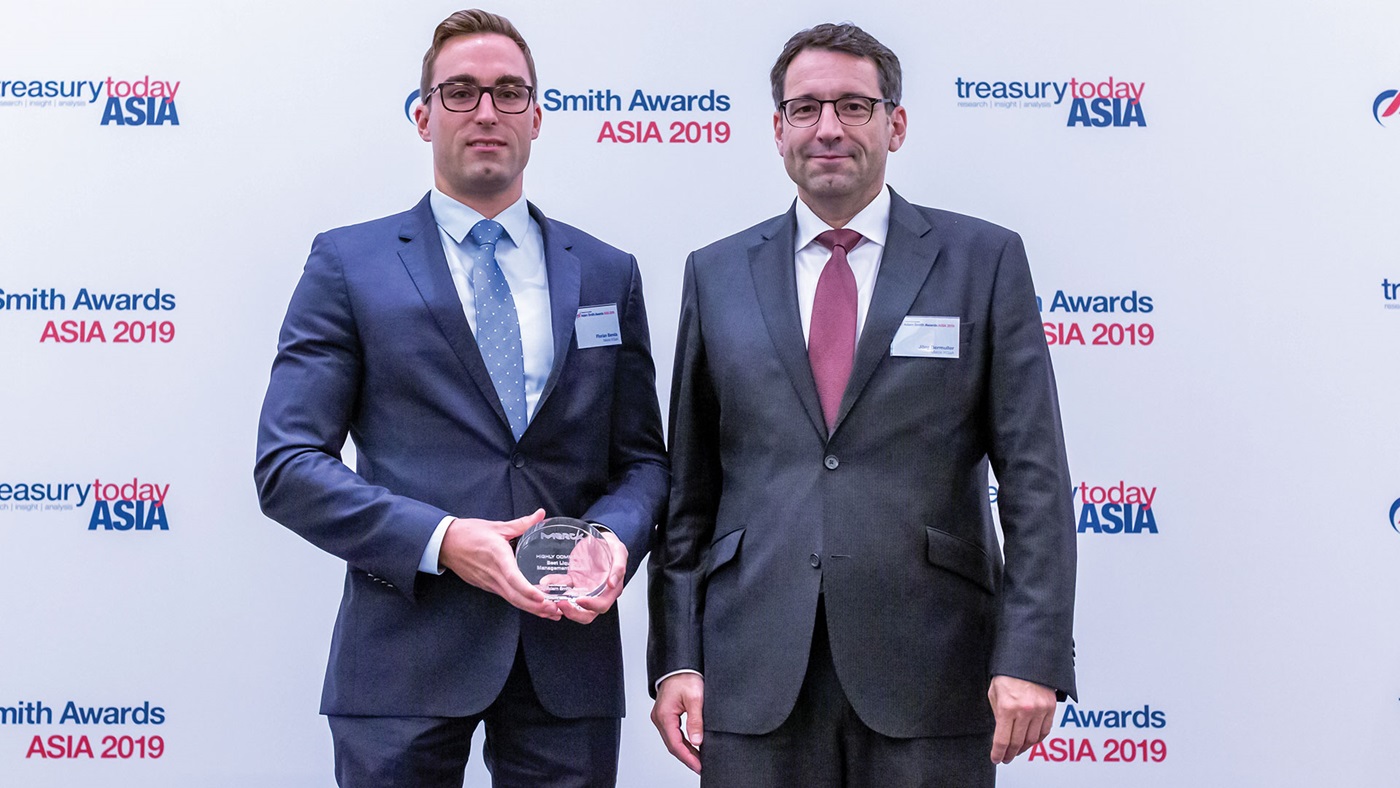

Implementing a fully-automated cross-border cash pooling structure is an extremely challenging task at the best of times, but more so in Korea, due to the strict cross-border inter-company lending requirements and related FX regulations. Such cross-border cash pooling solutions, especially automated ones, are uncommon in the Korean market.
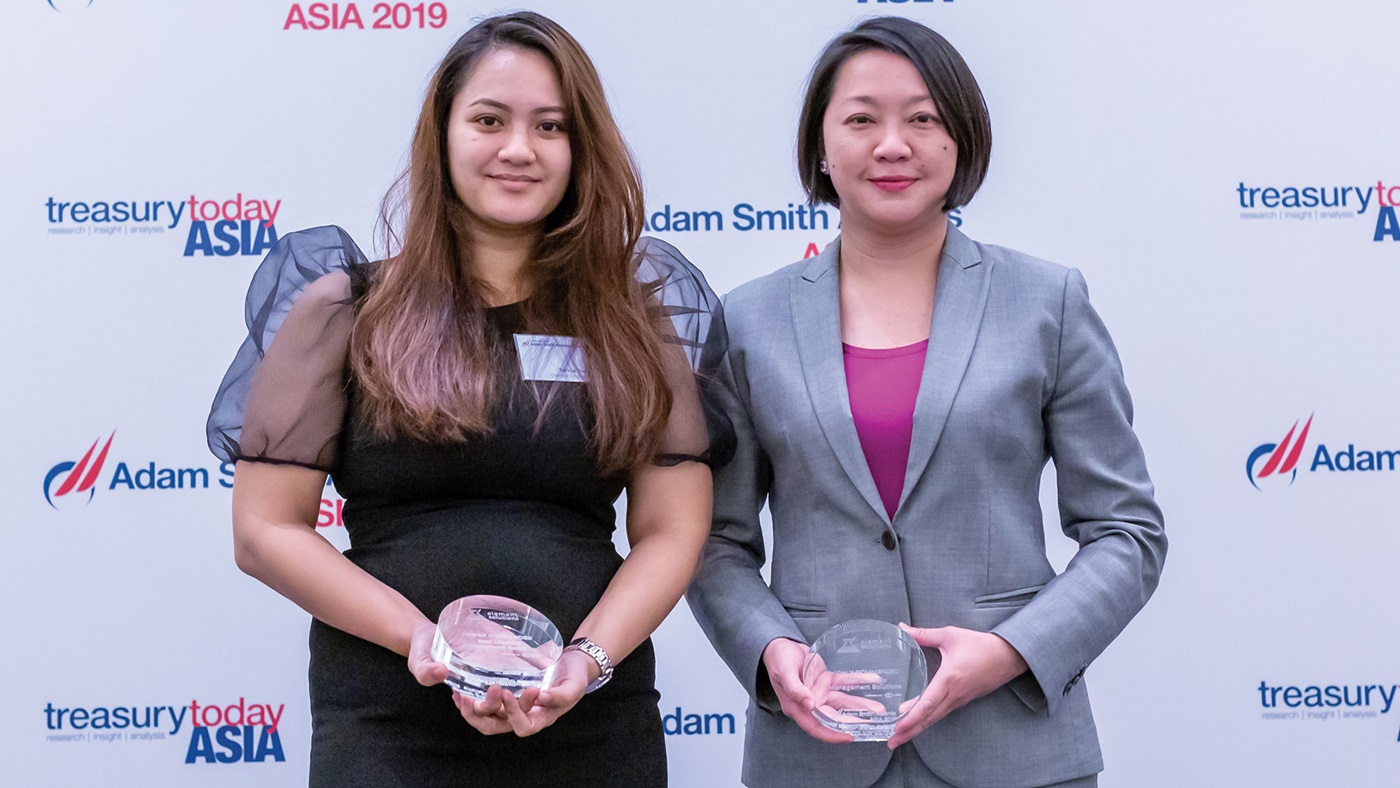
Element Solutions Inc (ESI) was formerly part of Platform Specialty Products Corporation (PSP), a global and diversified producer of high-technology speciality chemical products. Between 2013 and 2015 PSP went through a period of rapid growth, making six acquisitions totalling US$9bn. In July 2018, PSP announced its separation into two units: Arysta, which was sold to UPL, and the remaining PSP performance materials business, which was renamed ESI. The split was completed in early 2019.
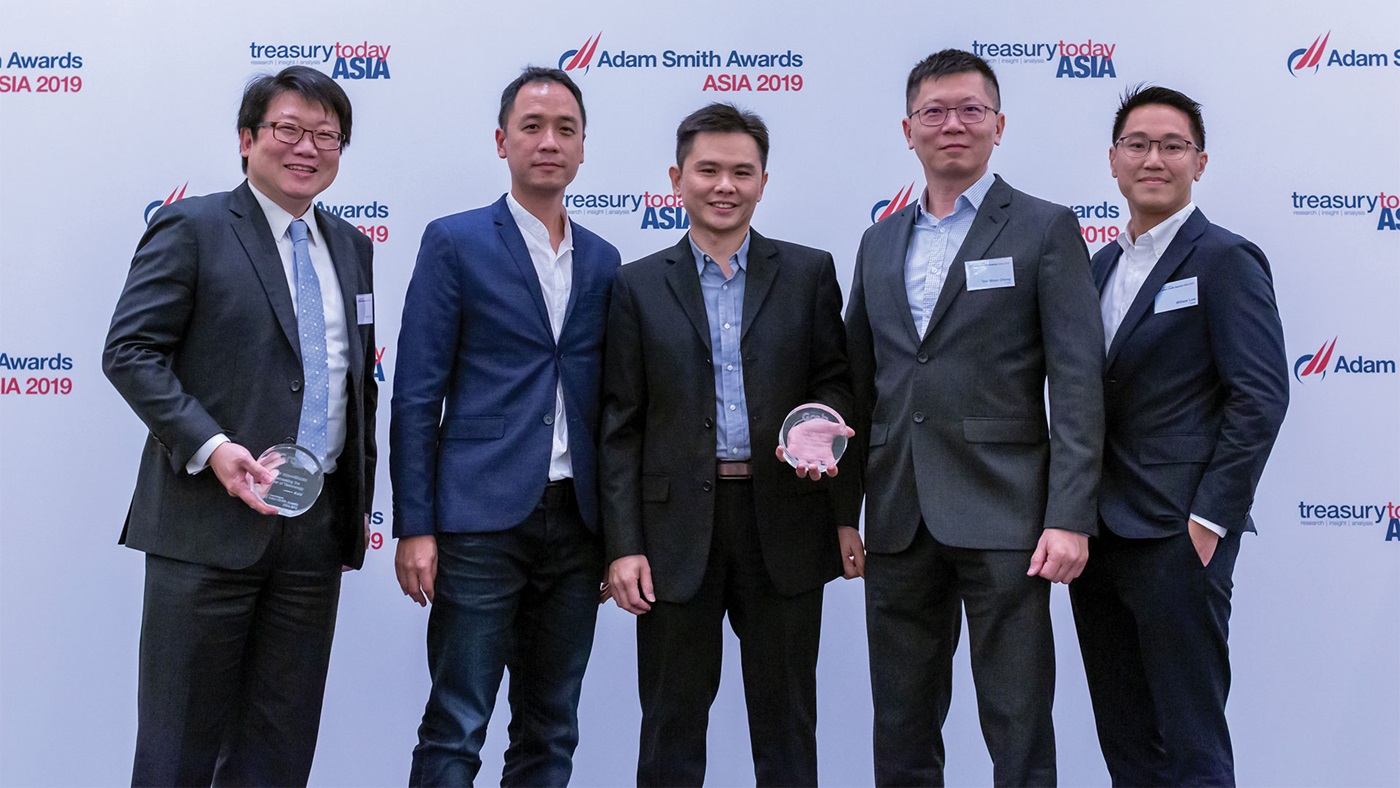

As Grab scales its transport, food and mobility businesses, the company has a unique opportunity to be a financial omnibus for its customers, drivers and merchants who are connected to the platform. The Grab platform sustains a dynamic ecosystem, connecting Grab seamlessly with its partners and consumers and enabling its drivers and merchants to be paid instantly, to access credit, to move from cash to cashless and to access seamless banking services.
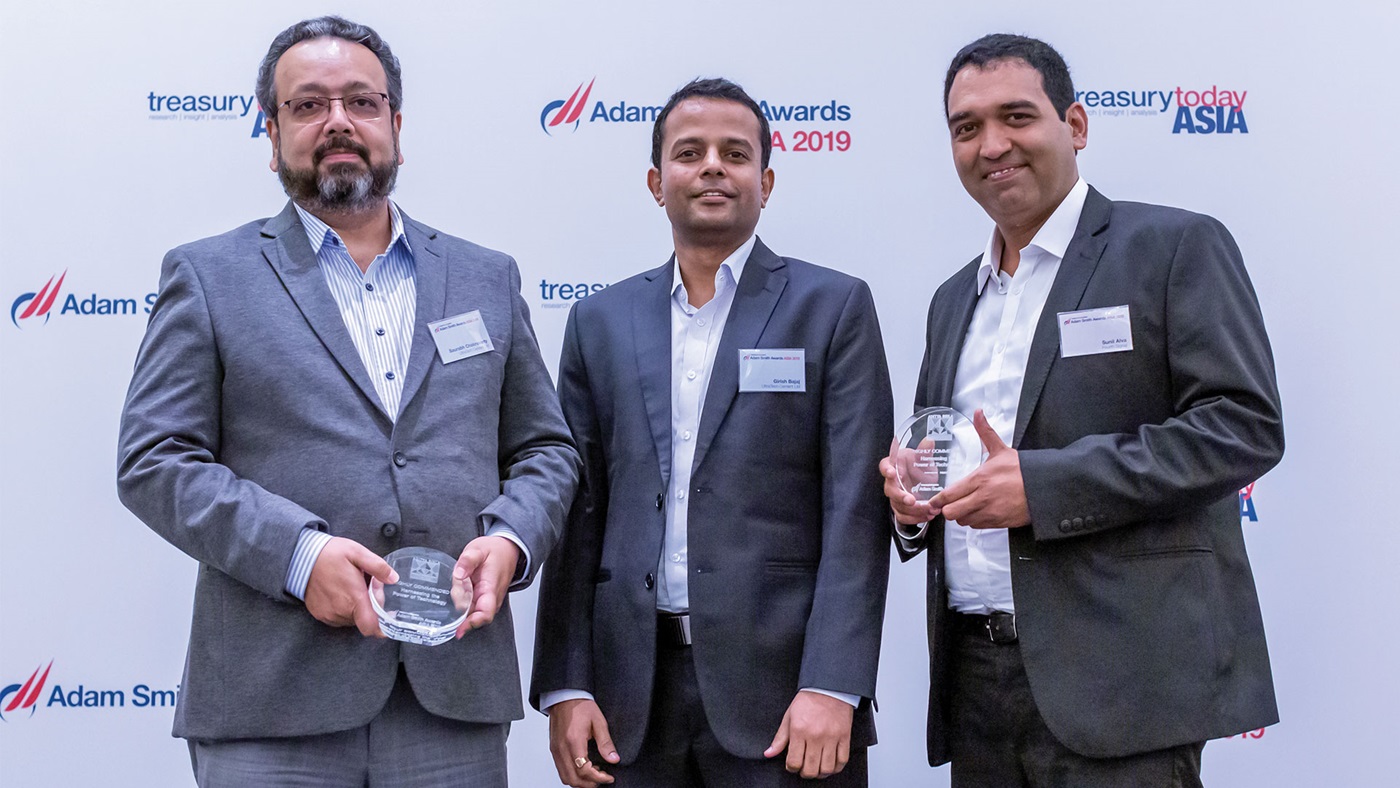
Saurabh Chakravarty, Jt President, Finance defined the aim as “transforming the treasury management function of India’s largest cement company – creating a robust but flexible digital platform to support our organic and inorganic growth.”
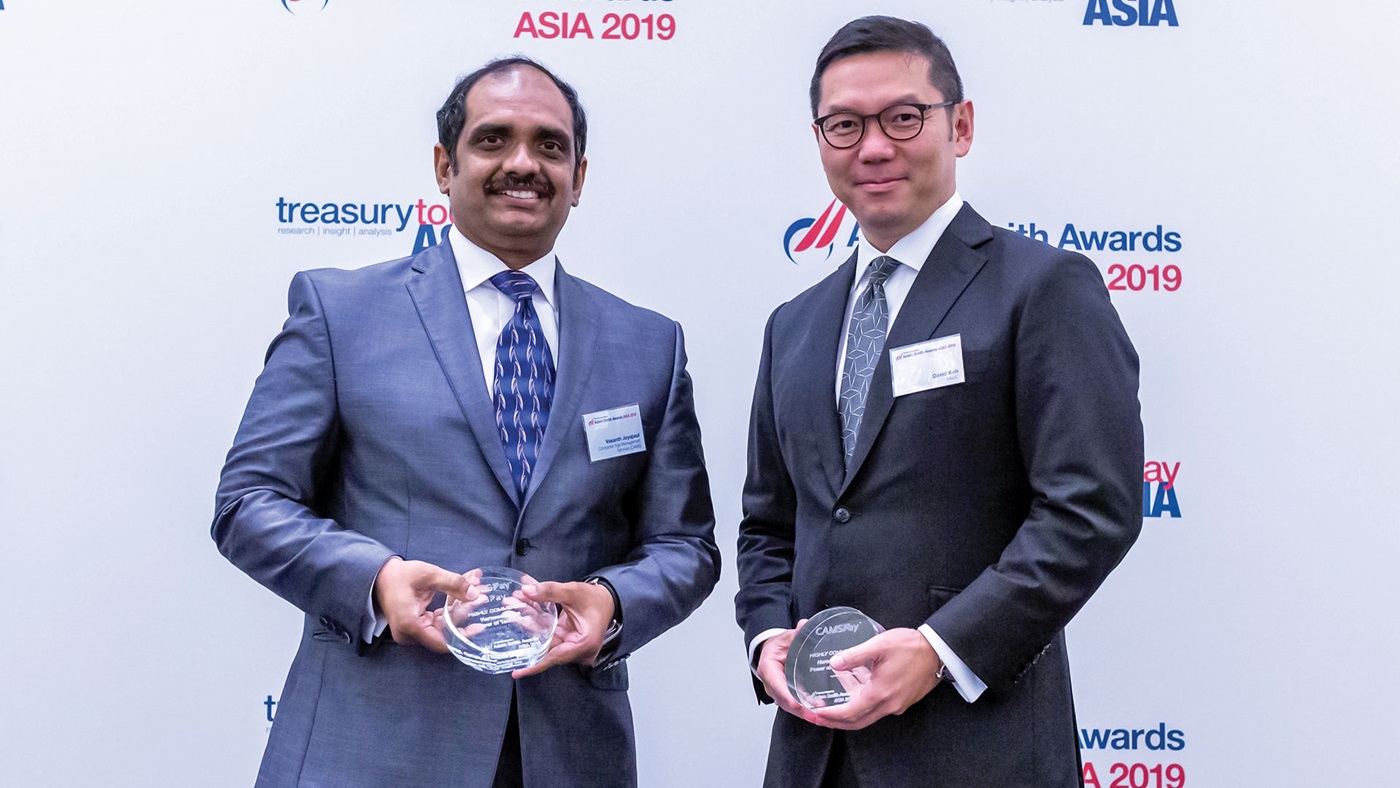

Computer Age Management Services (CAMS) oversees the complete lifecycle of approximately 60 million mutual fund investment accounts for asset management companies (AMC). Handling a large volume of electronic disbursements and systemic periodical collections is thereby a critical component of the company’s daily operations, and accuracy is imperative.
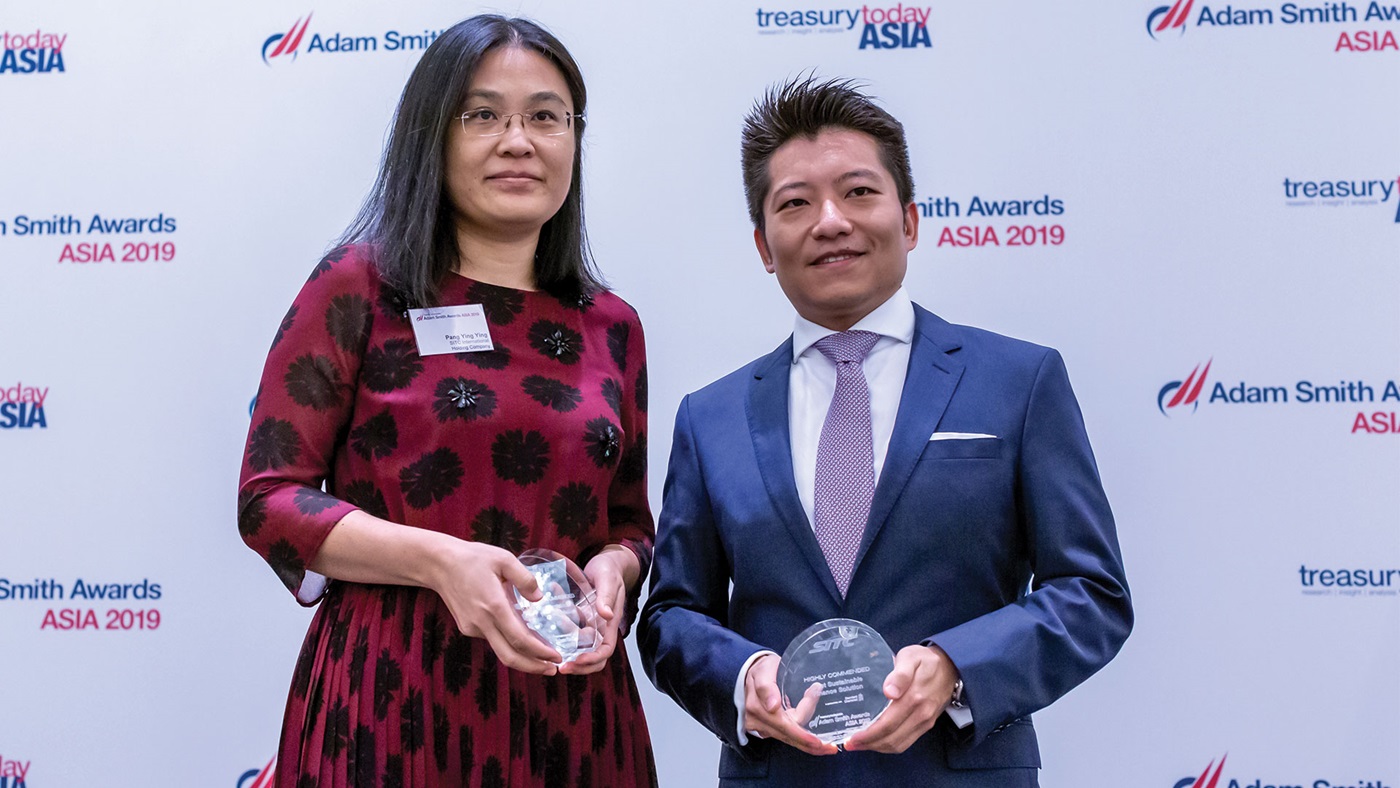
SITC needed to arrange bank financing for two new 2400 TEU container ships, featuring high fuel efficiency and an eco-design with low emission, which had been ordered from Yangzijiang Shipbuilding Group.
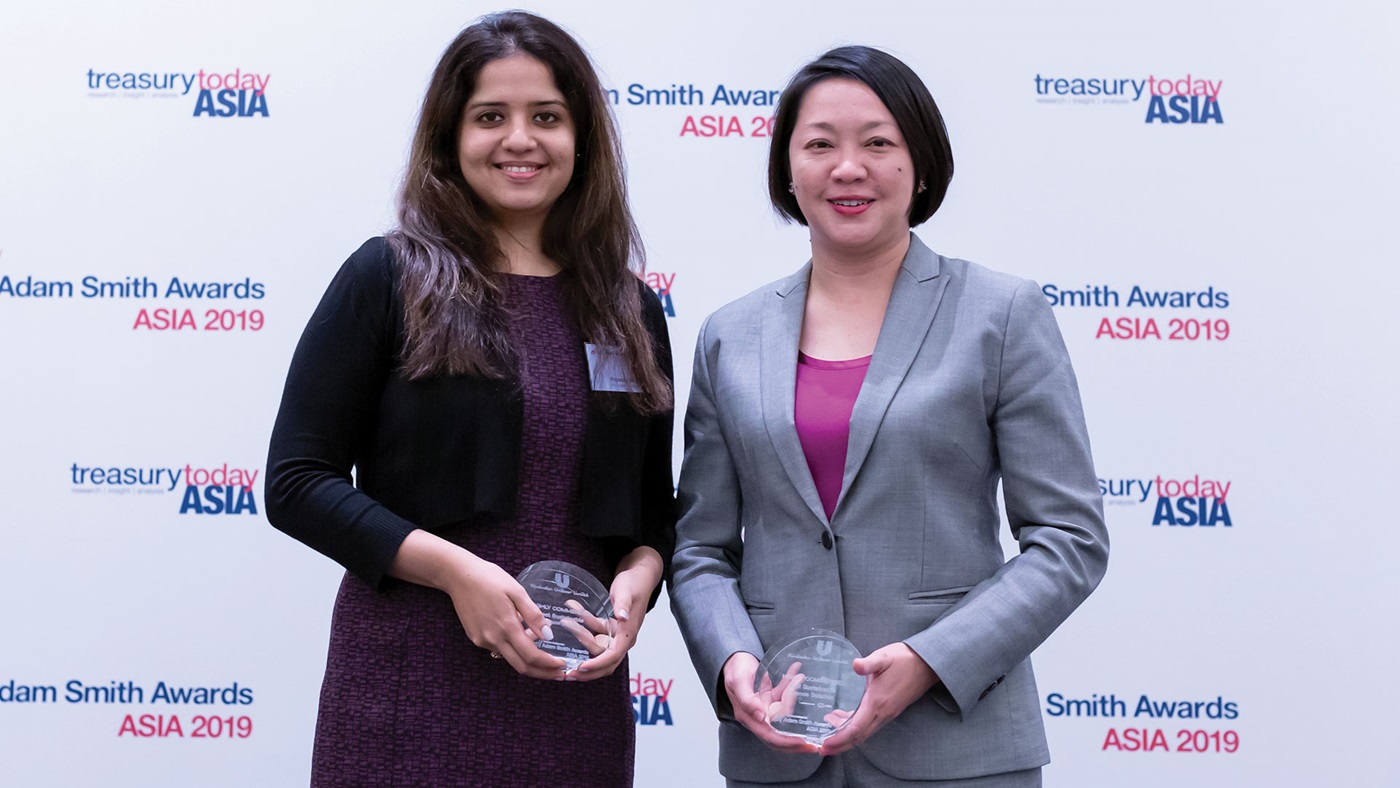

Hindustan Unilever Limited (HUL) operates a major CSR programme called Project Shakti to deliver financial empowerment and create livelihood opportunities for rural women. Shakti means ‘power’ or ‘empowered’, and the programme’s success has brought a new level of respect for many women, who are known as Shakti ‘Ammas’, or ‘mothers’, especially in communities where the norm was traditionally for men to be responsible for any sort of commercial enterprise.
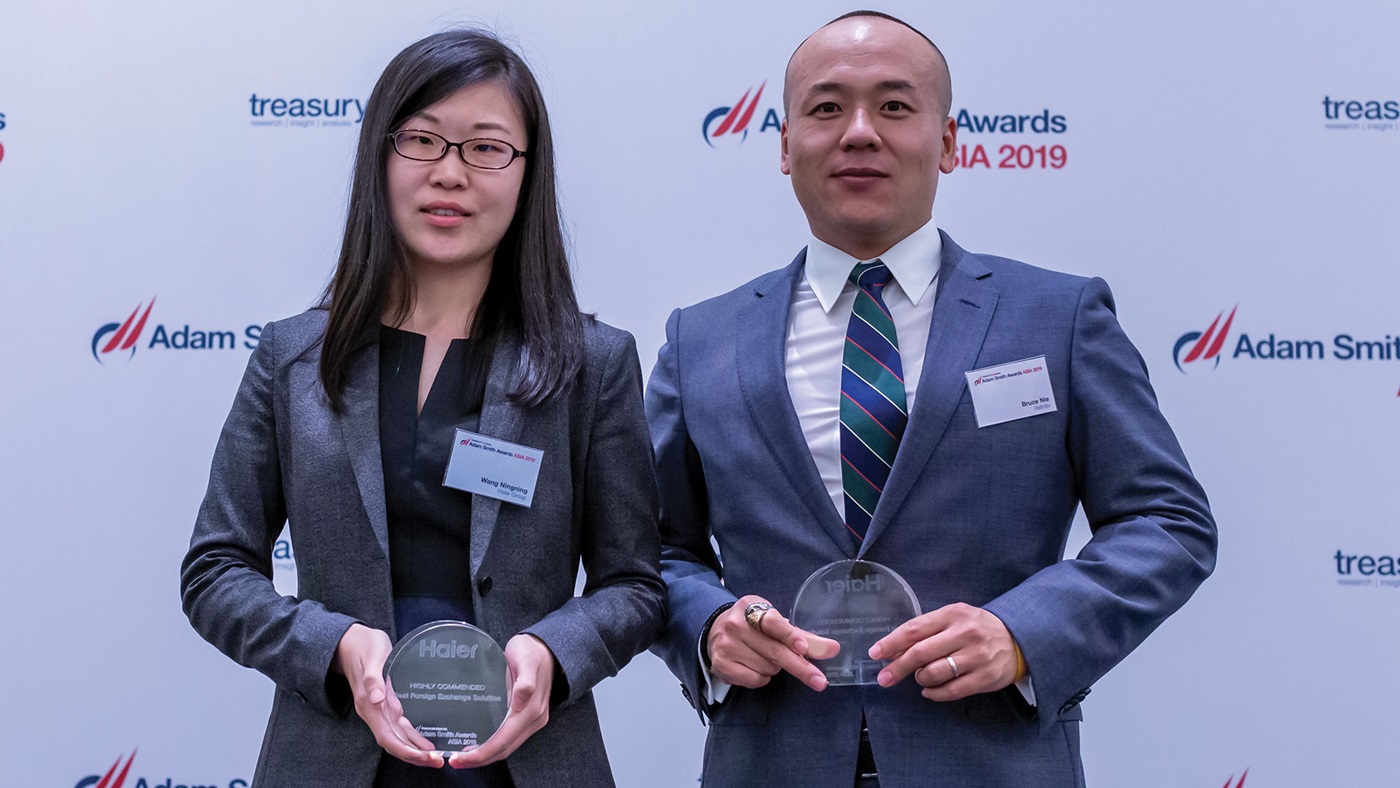
In financial markets where black swan and grey rhino events have occurred more in recent years, FX volatility is increasing and becoming much more unpredictable, posing a severe challenge for FX risk management. The management of global FX risk exposures now plays a much more important role. This requires a step-change in company levels of professionalism, automation and use of information in their FX workflows globally.
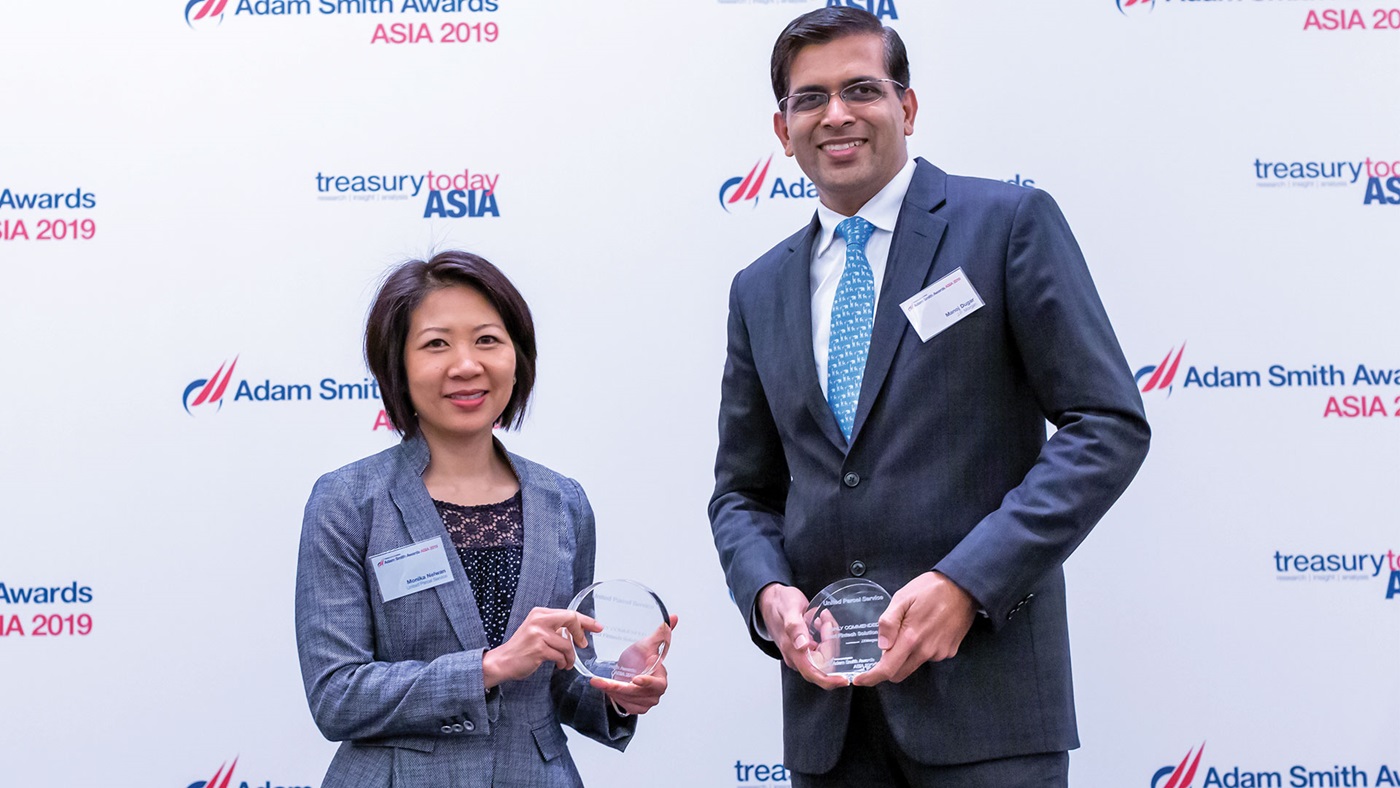
For corporates in South Korea, the process of accounts reconciliation is a daunting task and UPS were no different.
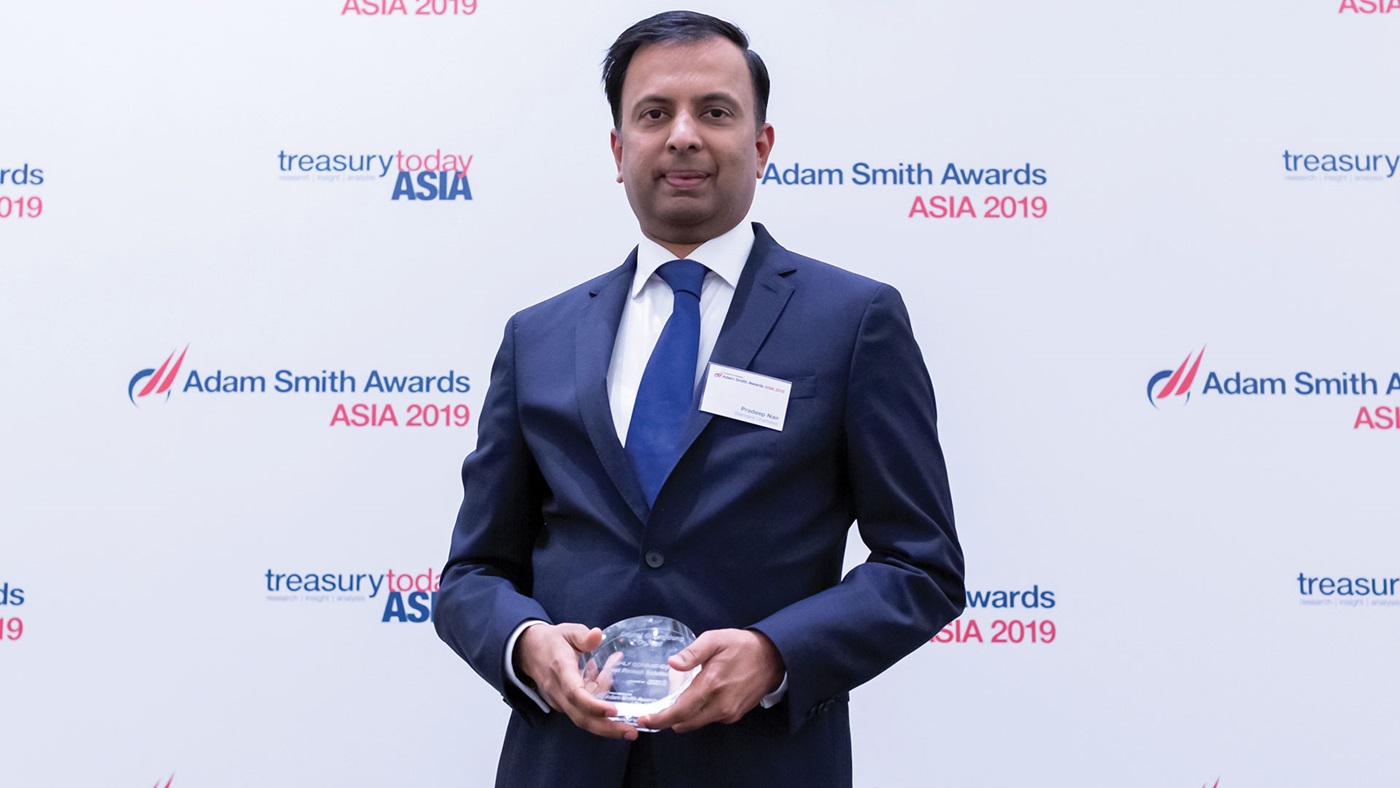
Digital Guangdong (Digital GD) wanted to improve the way it managed its accounts payables along its supply chain to multiple suppliers.
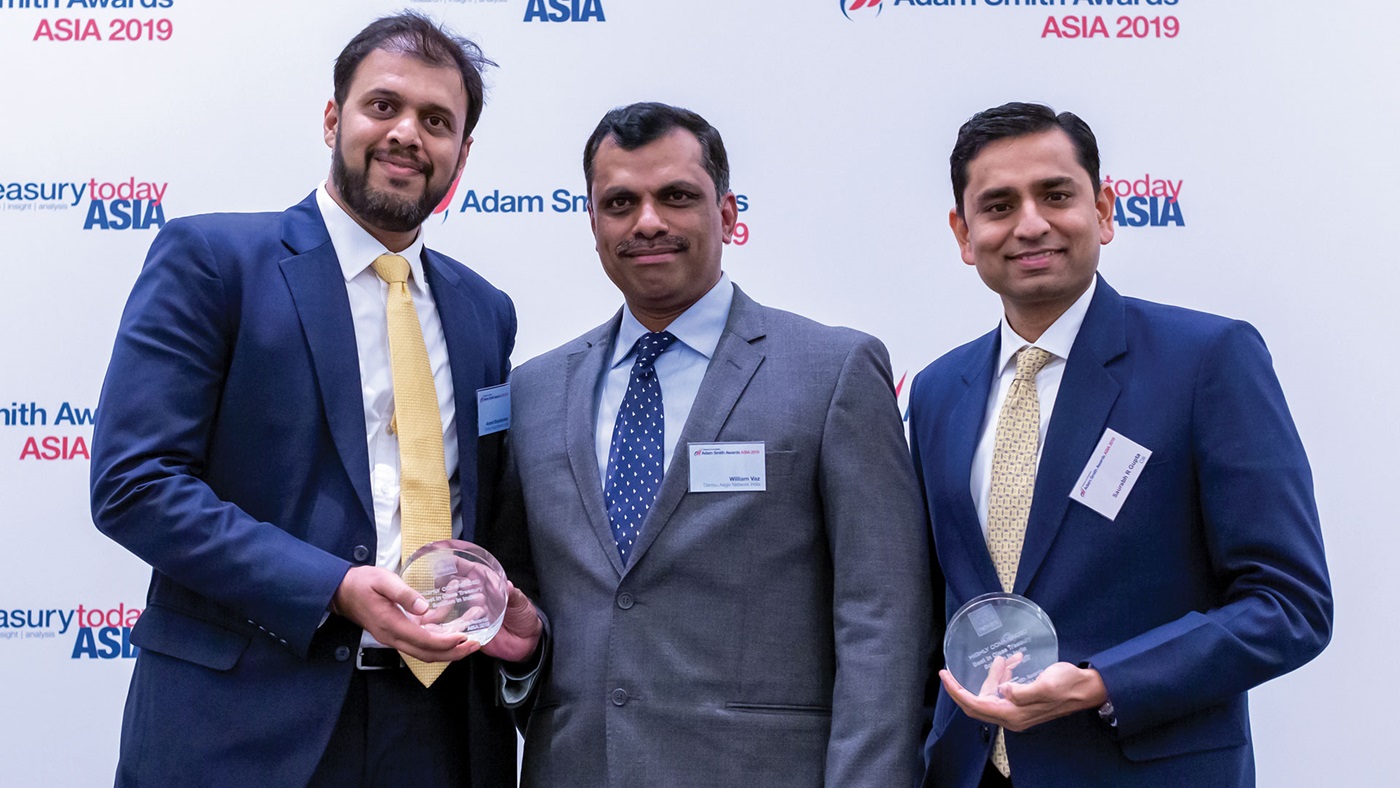
Dentsu Aegis Network Group (DAN) India has 26 operating entities in India, which have varying cash positions with changing surpluses and deficits, leading to significant debit interest loss because of overdraft borrowing and loss of investment opportunities due to idle balances. Given the volume and value of underlying transactions, DAN India was looking for a bespoke automated pooling solution, which would help it to achieve optimal cash positions across entities and be compliant with pooling regulations in India by restricting the number of pooling transactions.
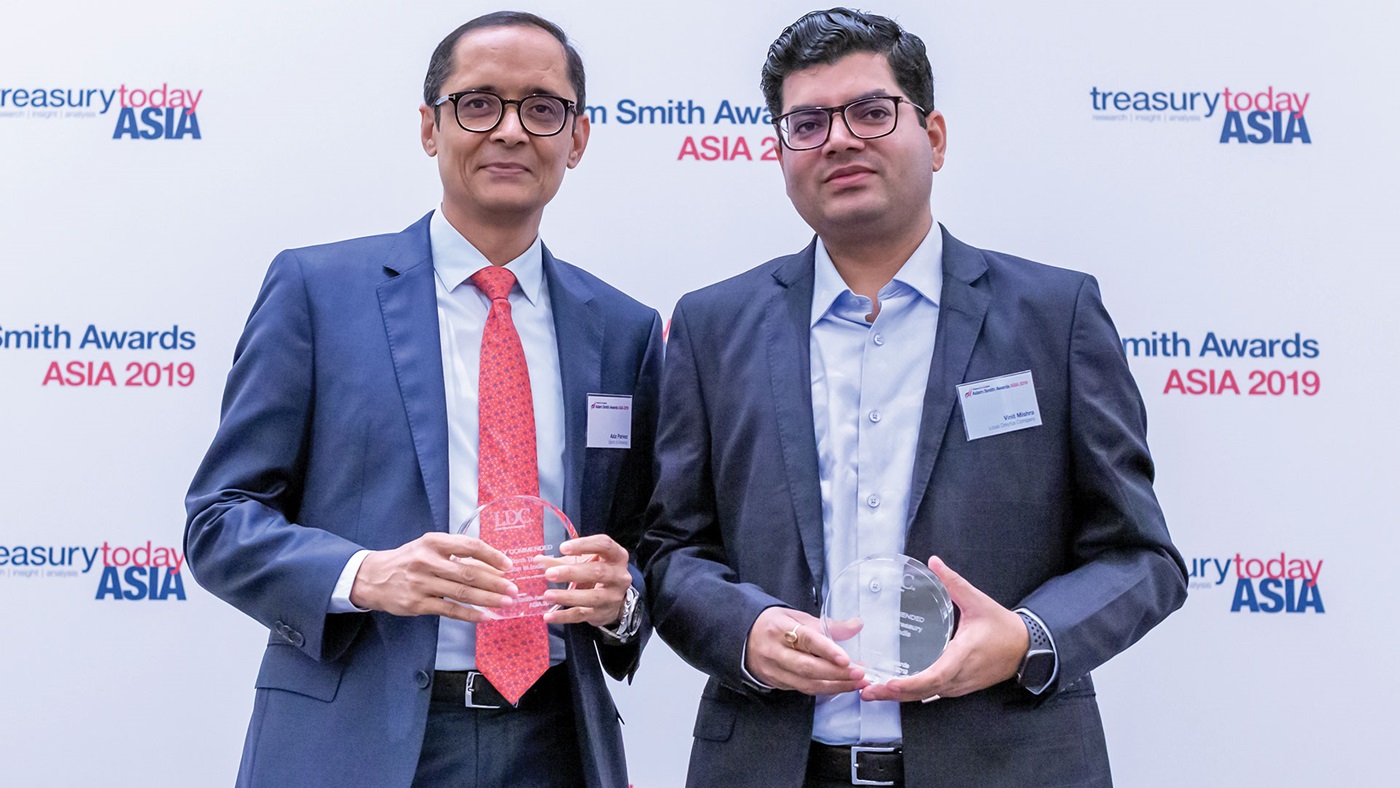

For such a large entity operating across a range of sectors, Louis Dreyfus Company (LDC) India had a growing need to improve the way payables and receivables were being managed across each part of the business. The company also wanted to reduce the number of bank accounts being operated and gain efficiency over its cash management activities, as business execution within a limited time period is key to maintaining a leading position in a highly competitive and evolving commodity industry.
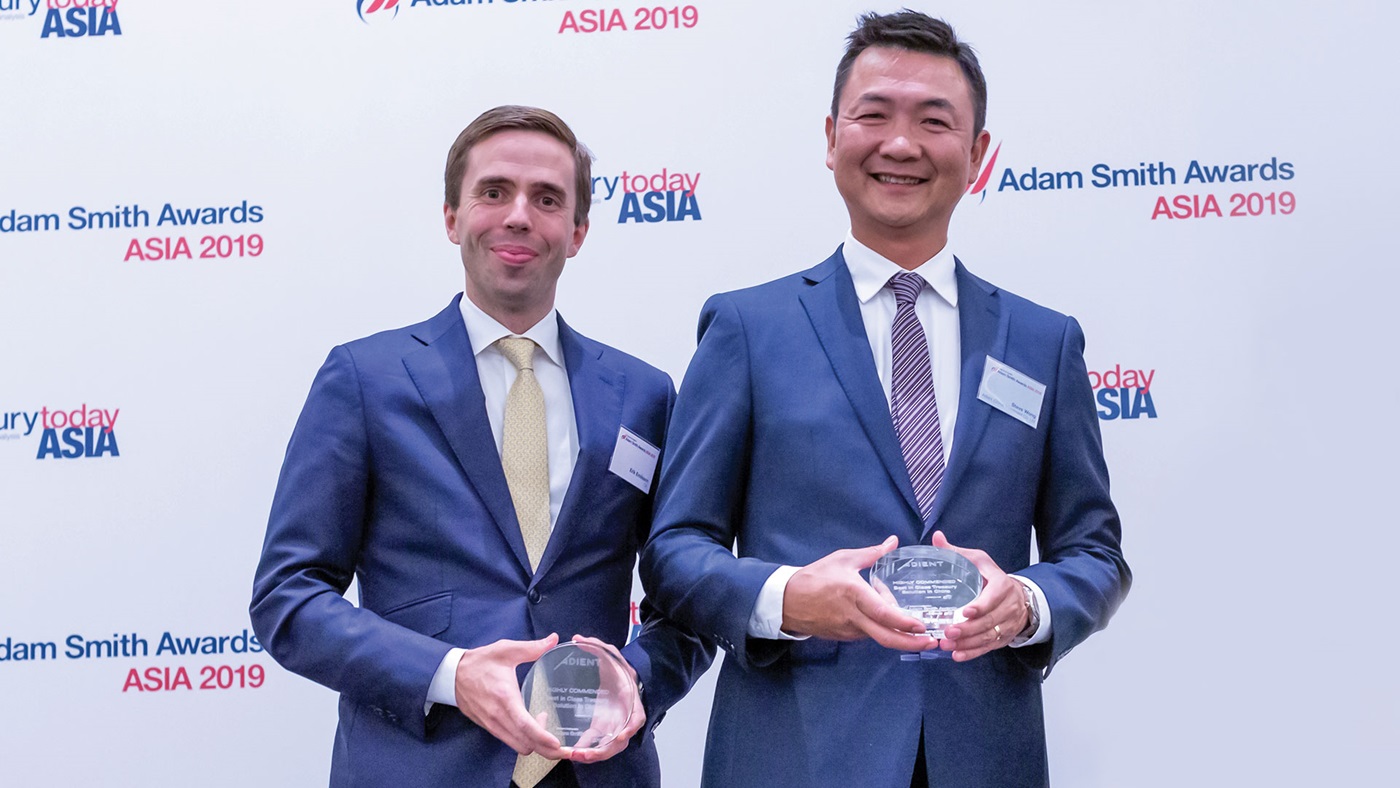

Adient was looking for options to manage its idle cash maintained in China and optimise its global non-restricted liquidity efficiently and cost effectively.
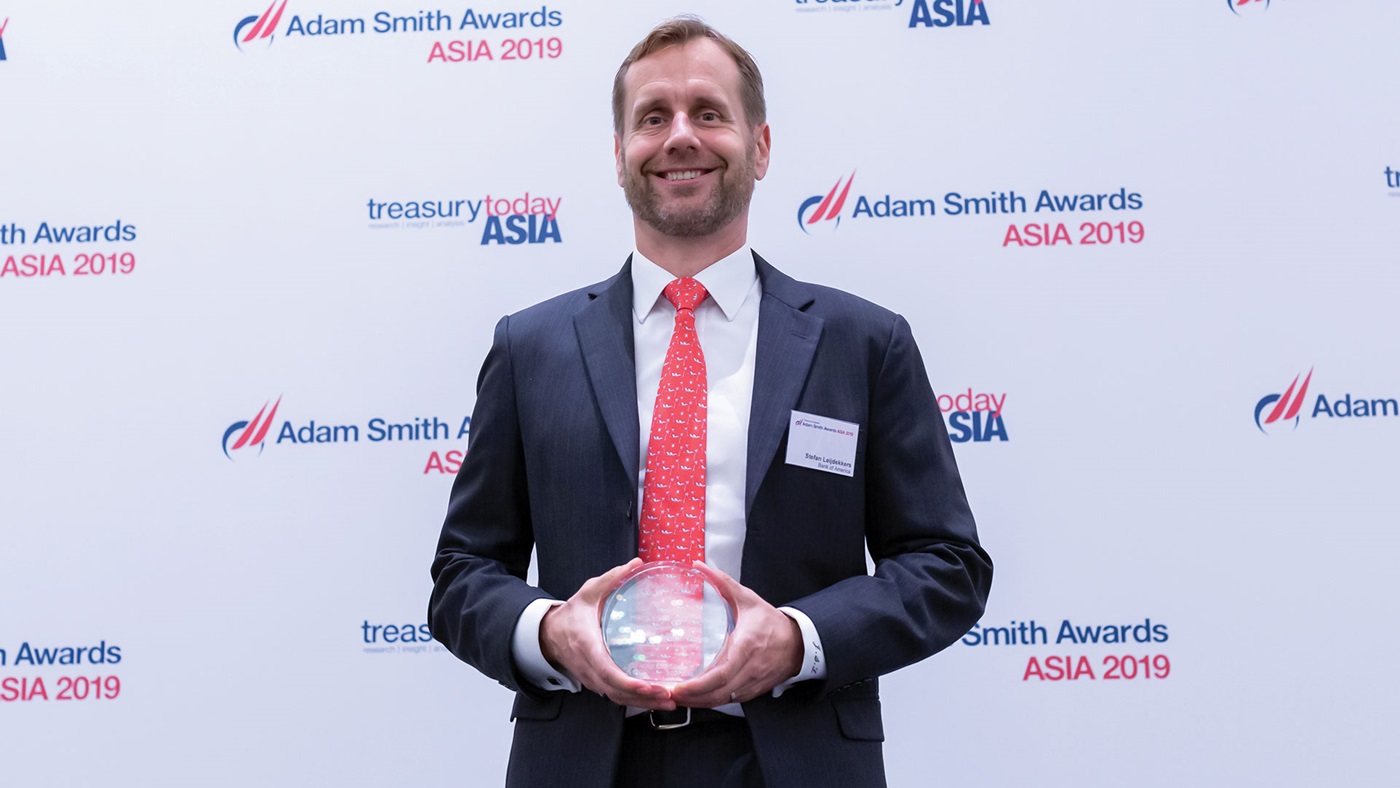
Linamar wanted an integrated treasury and trade solution to facilitate its increased working capital needs in China.